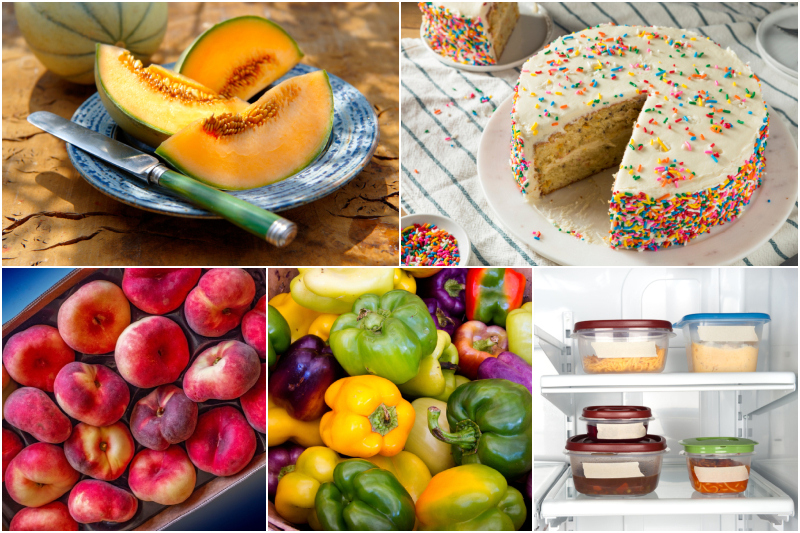
For certain foods, refrigeration is actually worse than keeping them on the counter or in the pantry. To optimize the flavor of foods and space in the fridge, here’s a quick list of which foods do not need refrigeration.
Keep Your Apples Sweet
You can keep your apples sweeter for longer by leaving them out of the fridge. Put them in a basket in plain sight, and these colorful fruits will be devoured much faster than hidden in the fridge. So, unless you are hoarding them for yourself, leave apples on the counter.
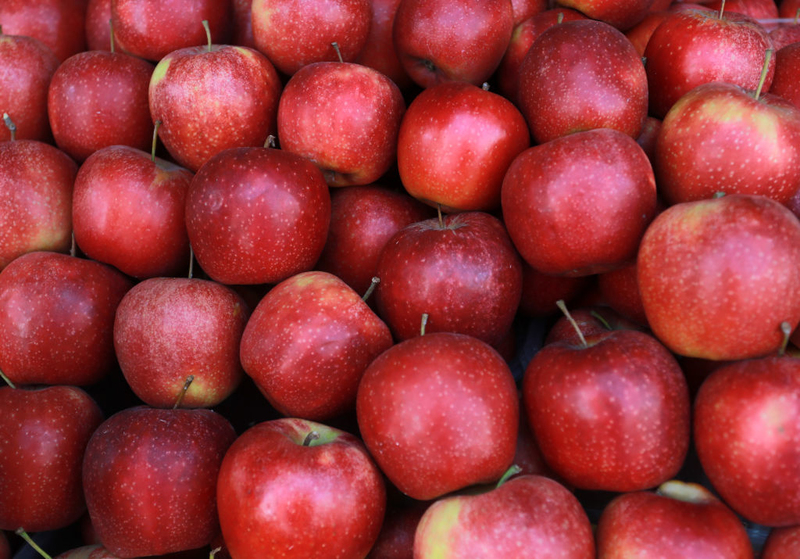
Not only do they look spectacular when piled up in a bowl but storing apples in the fridge can turn them mushy inside. But, after a week or so on the counter, you might want to stick them in the fridge to get a longer shelf life out of them.
Spare Your Bread From the Cold, Dark Fridge!
Refrigerating bread will not only ruin the texture but keeping it for so long will make it go stale and chewy as the cold air facilitates this process. Leave your bread on the counter or in the pantry. Store it in a cool, dry place, away from windows or heat.
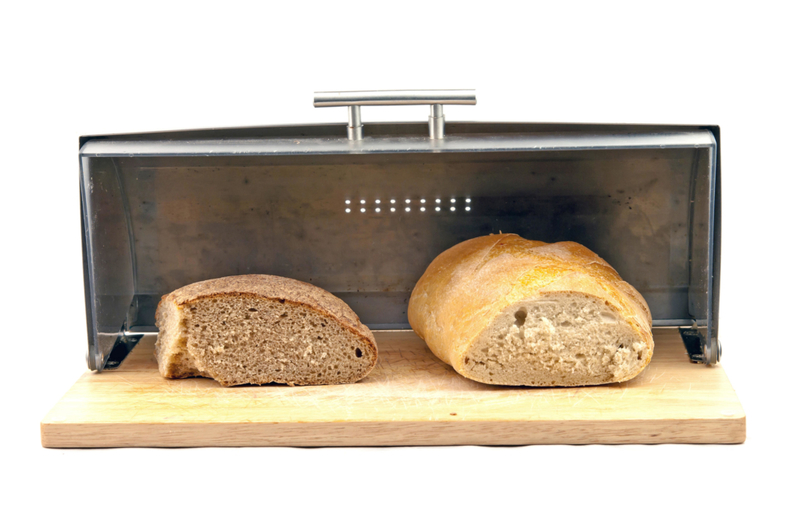
A bread box is best, but most people keep bread wrapped in plastic, which is fine. After a few days, however, wrap it up and pop it in the freezer to keep it fresh. Bread is best the first day it is baked, but keeping it properly will optimize its quality.
Need Some Fridge Space?
That big old jar of pickles can sit out. But many people like to eat pickles when they are cold and crunchy straight out of the fridge. Some don’t. Since pickles are a preserved food item, they can be stored either in the refrigerator or at room temperature without any issues.
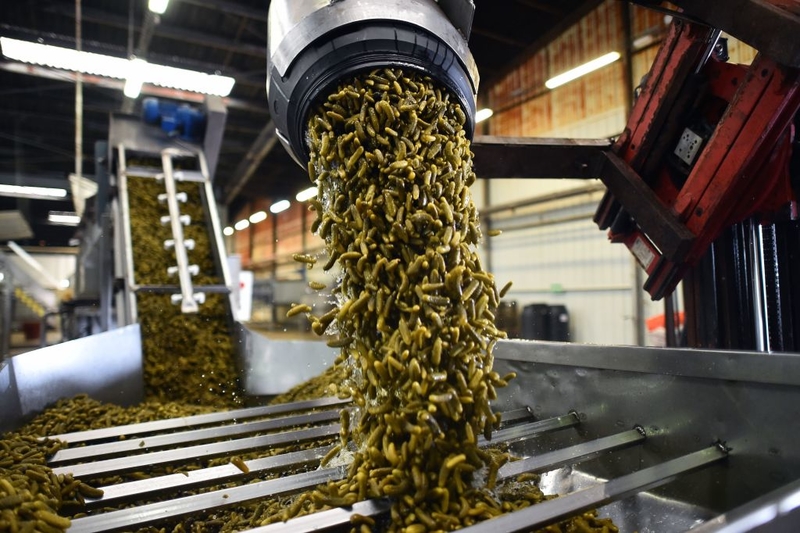
That's why when shopping at the deli, we often see a large barrel of individually sold pickles sitting out on the counter. So why not leave your jars of pickles out at home? Pickle jars are filled with vinegar, which is high in acetic acid and naturally prevents bacteria from growing.
Treat Eggplant With Care
If eggplants could speak, they would beg us to release them from their prison sentences in the drawer of your refrigerator. Like many other vegetables, eggplants are susceptible to chilling injury. Pitting, bruising, brown seeds, and flesh result from storing eggplant at or below 41 degrees for an extended period.
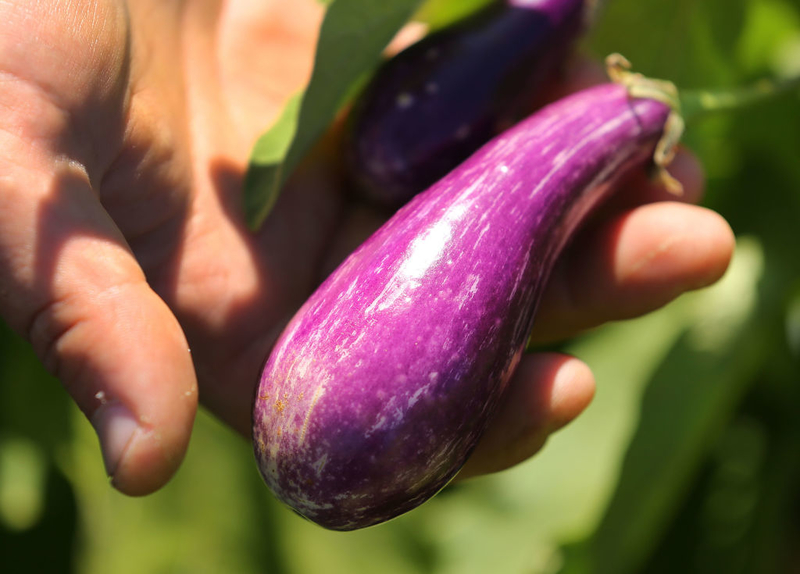
Flavor and texture are both negatively impacted; plus, eggplants can overripen if they are stored in close proximity to bananas, apples, melons, and other fruits with high ethylene production. If you have too many to prepare and need to keep them in the fridge, try to use them within three days.
Don’t Ruin a Good Watermelon
Ummm, this is a tough one. Watermelons are packed with antioxidants, beta-carotene, and a significant supply of other nutrients. Health benefits include preventing cancer and sun-related skin damage. But you might want to know that a 2006 study from the U.S. Department of Agriculture said that refrigerating watermelons saps those helpful nutrients away.
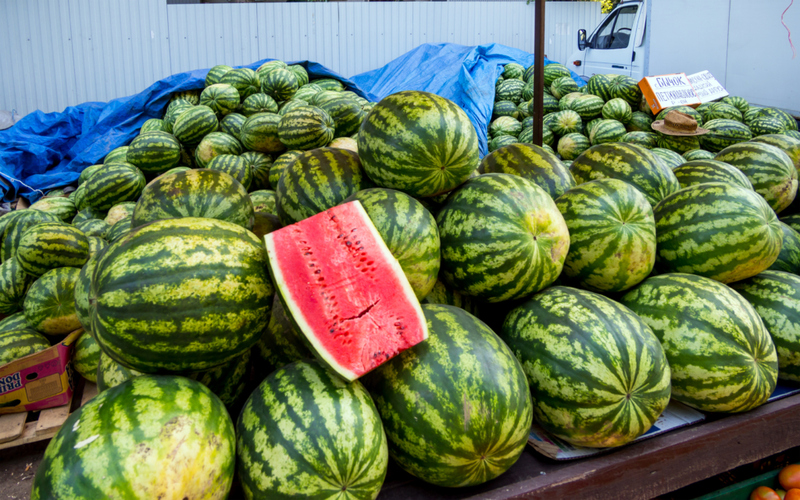
The bright red flesh of watermelon also contains more lycopene than any other fruit or veggie. But those, too, diminish with refrigeration. But cold watermelon tastes so much better! So it’s okay to chill before serving, that way you can enjoy your watermelon chilled. It is the prolonged refrigeration that deprives the fruit of its natural nutrients.
Leaving Salad Out Is Fine
A bowl of mixed greens kept on the counter before serving is not a problem. But after a couple of hours, you might want to refrigerate it before it goes soggy so that it retains its crispness. In general, lettuce and other vegetables sit out when they are busy growing outside.
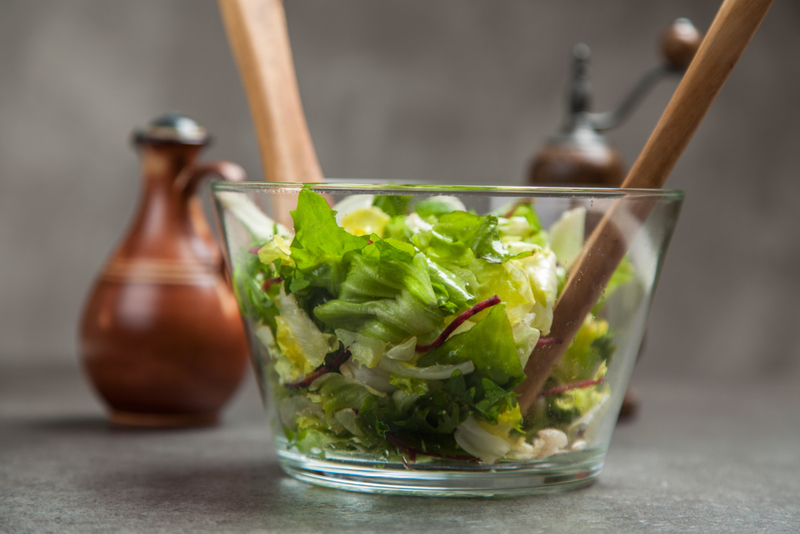
But once they've been cut and removed from their source, they will soon begin to wilt. So the sooner you use them, the better, but weather permitting, you can probably leave them out for a while. Unless it’s very warm or anything over 80 degrees, the salad greens will start to wilt.
Don’t Refrigerate Cantaloupe Until It Is Ripe
Similar to citrus fruits, cantaloupes developed a thick, textured rind to protect their delicious and sweet flesh. However, as soon as they are picked, they begin to ripen. However, cantaloupe can stay fresh for a while before it ripens and should be left out on the counter until it is ready to eat.
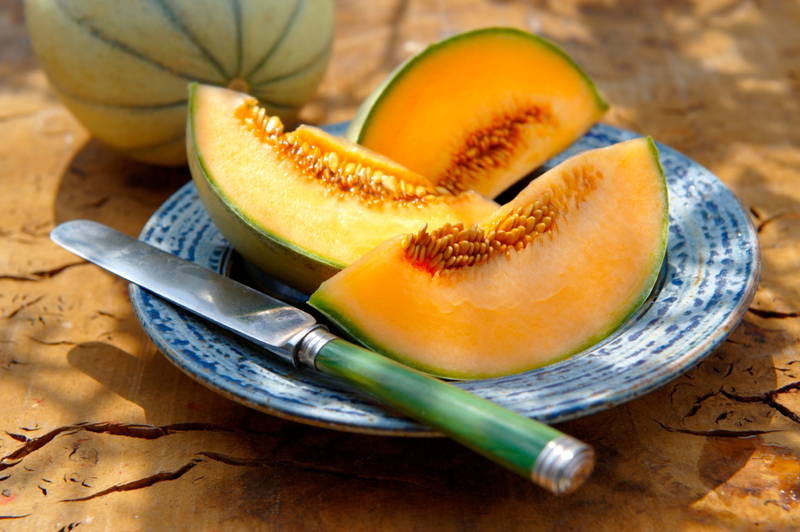
Refrigeration may deteriorate the flavor and nutritional content, but after it is ripe, you might want to cut it up and store it in the fridge before it spoils. These antioxidant-rich fruits hold more vitamins and nutrients while they are naturally fresh. But beware, if you eat a cantaloupe that tastes a bit old, you could get really sick.
Do Not Lock Your Tomatoes In a Cold, Dark Fridge.
One way to ruin a perfectly good tomato is to refrigerate it. All the sweet juiciness of its tender flesh will be transformed into a mushy, mealy mess. Cold tomatoes? Yuck! Tomatoes taste best at room temperature, which is why, in Italy, everyone leaves their tomatoes out on the counter.
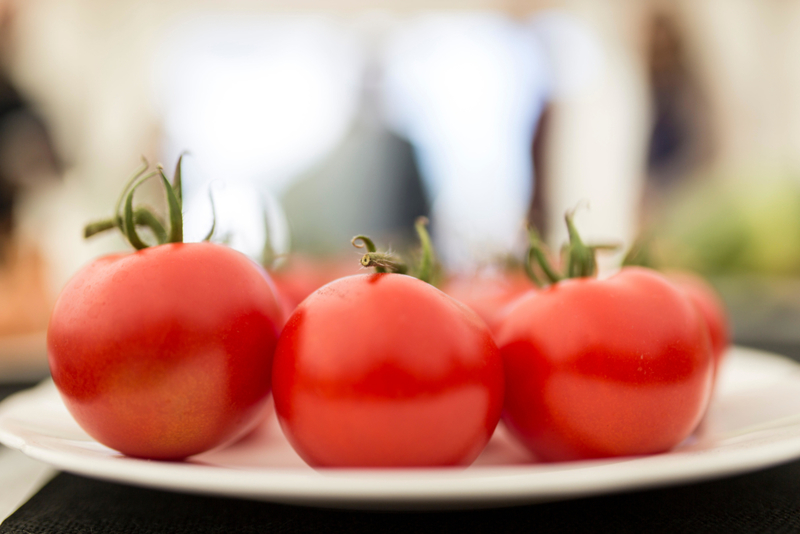
But if you want to know why that is exactly, it's because the cold temperature inside your fridge breaks down all that flavor and aroma. A 2016 study by the University of Florida confirmed the existence of flavor alterations due to the chemical degradation of tomatoes kept in refrigeration for a week.
Papaya Comes From the Tropics Too
Papaya comes from Hawaii, which is actually the only place where it is commercially farmed. Let it soften and ripen on the counter. If you want it to ripen sooner, pop the papaya into a paper bag. It will ripen in about three days sitting out and even sooner inside the bag. Once it is soft to the touch, cut it open and slice it up.
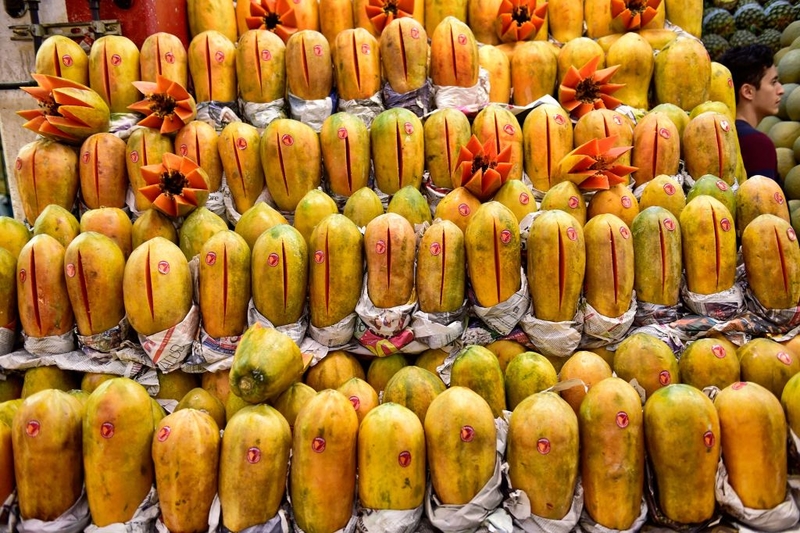
Another way you can tell if it is ripe is by its yellow color. If you sniff it, it should smell slightly sweet. If you have extra papaya, you can cut it into cubes and freeze it for a convenient smoothie ingredient. Most fruit can be frozen and used in smoothies after it is cut.
Tips For Storing Garlic
Garlic is picked and then dried, so it’s best to keep it in a dry place. To optimize shelf life, store the bulbs in a well-ventilated, dry area. Specialized ceramic jars with air holes work best, but as long as they are kept in the pantry or other dry place.
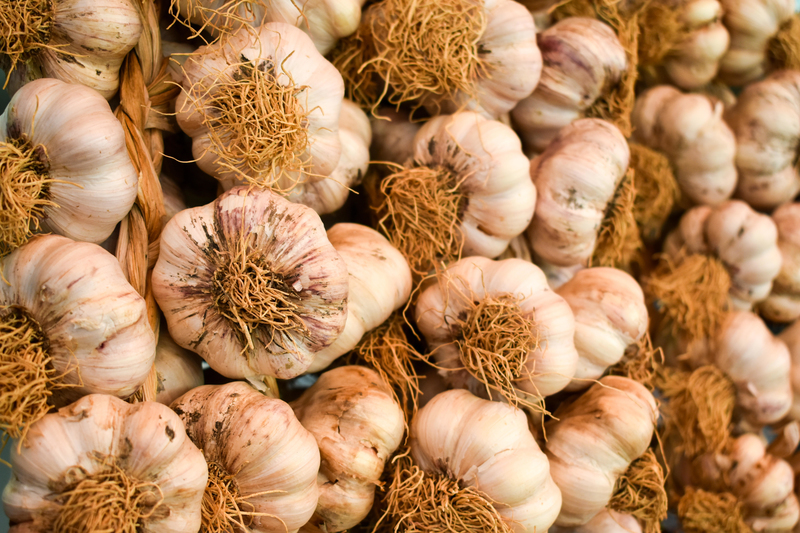
Don't be tempted to wrap them in plastic; their skins keep them perfectly sealed and protected. Storing them like this is the best way to make sure the bulbs will maintain the best quality. The refrigerator is a harsh environment for garlic. It can become moldy and cause the bulbs to deteriorate.
Have You Ever Thought of Storing Cereal In The Fridge?
It's been estimated that the average American eats around 160 bowls of cereal per year. To say cereal is popular would be a massive understatement. But what's cereal so great? It's dry and crunchy, and that crunchiness is the perfect counterpart to milk or yogurt. Put it in the refrigerator, and it will turn limp and soggy.
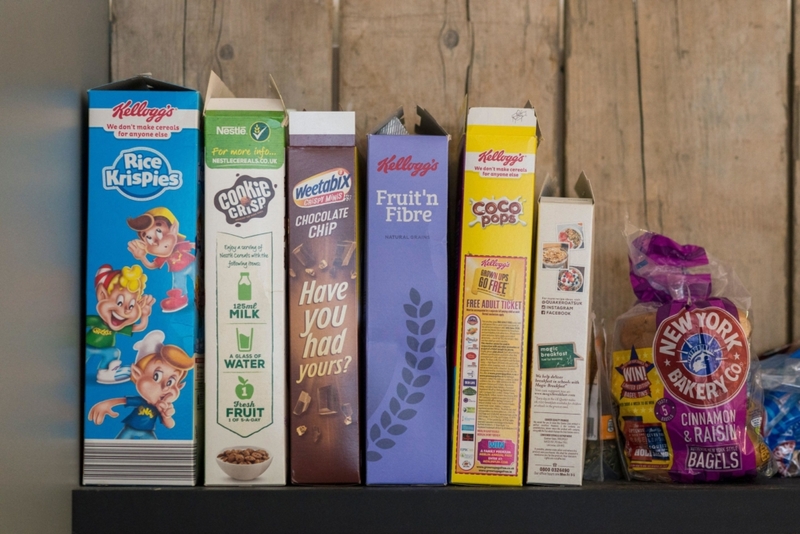
Honestly, we've never heard of anyone putting their cereal in the refrigerator, so if you feel tempted to now, don't do it! Even if you won't be home for a while and want to make sure it doesn't spoil. Instead, store cereal in an airtight container in a cool, dry place such as a pantry.
Olive Oil Is Best On the Shelf
There is no reason to store olive oil in the refrigerator. The cold air makes it a congealed, clumpy mess that's inconvenient and will only be messy to use. Cold air does not affect the quality of olive oil, but warmth, sunlight, and air can cause it to become rancid before its time.
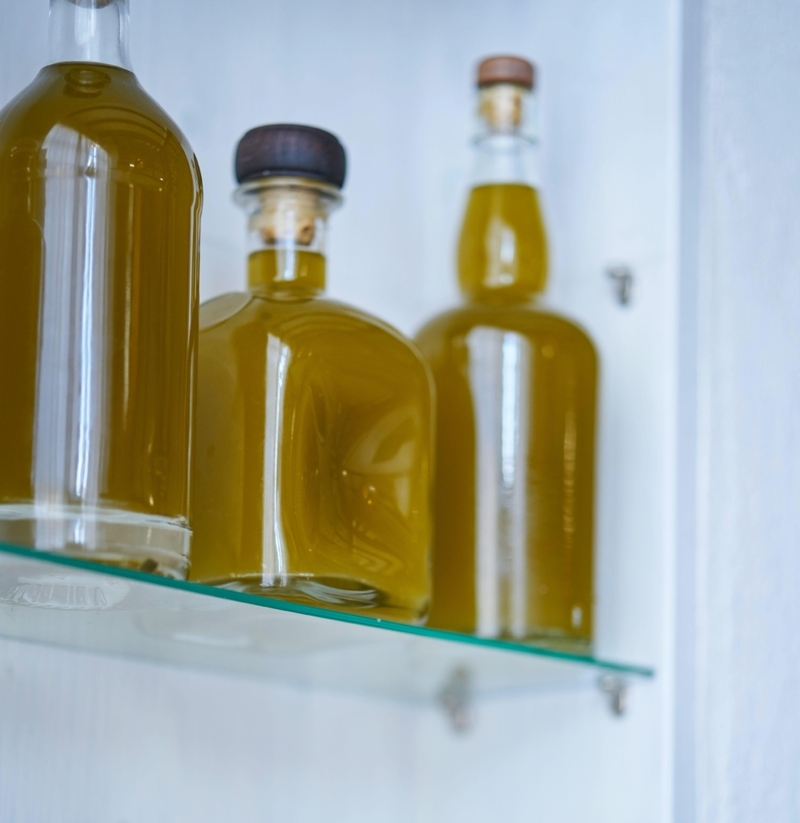
So, the best way to store olive oil is to place it in a cool, dark cupboard inside of an airtight bottle. Some recommend using containers that are not plastic to avoid chemicals seeping into the oil. And, if you keep it on the counter, an opaque bottle resilient to light, is best.
Optimizing Avocados
Avocados are usually picked when they are hard as a rock and eaten when they soften over time until they become as soft as room-temperature butter. Refrigerated avocados will not ripen. Leaving them out on the counter, you can keep an eye on their ripening status so they can be consumed at peak flavor.
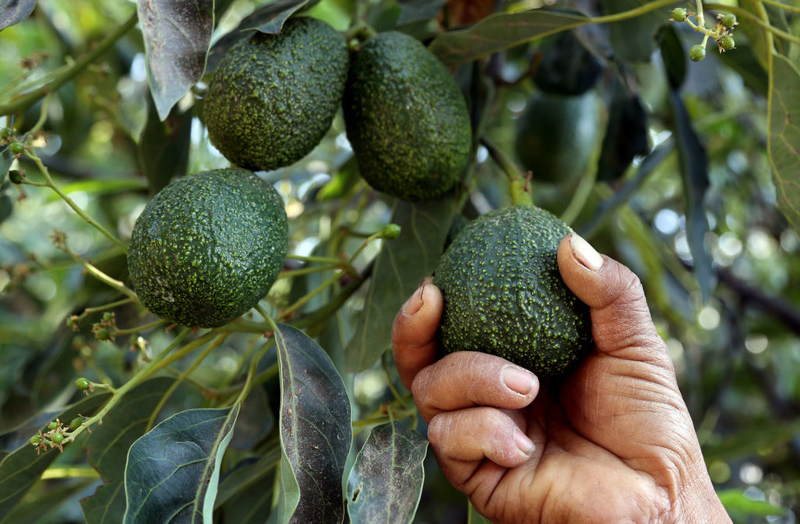
A refrigerator comes in handy once they have ripened. By storing them in the produce drawer, you can get a few more days out of them or perhaps use them for a nice bowl of guac. But be careful, avocados have a tendency to ripen overnight, turning black and what was once delicious becomes inedible.
How To Keep Sweet Potatoes At Their Best
Do not keep sweet potatoes in the refrigerator. These root veggies prefer to be stored in a cool, dry place. Make sure there is plenty of ventilation, and definitely do not wrap them in plastic; let them sit fully exposed to air. Keeping them in the fridge will ruin them.
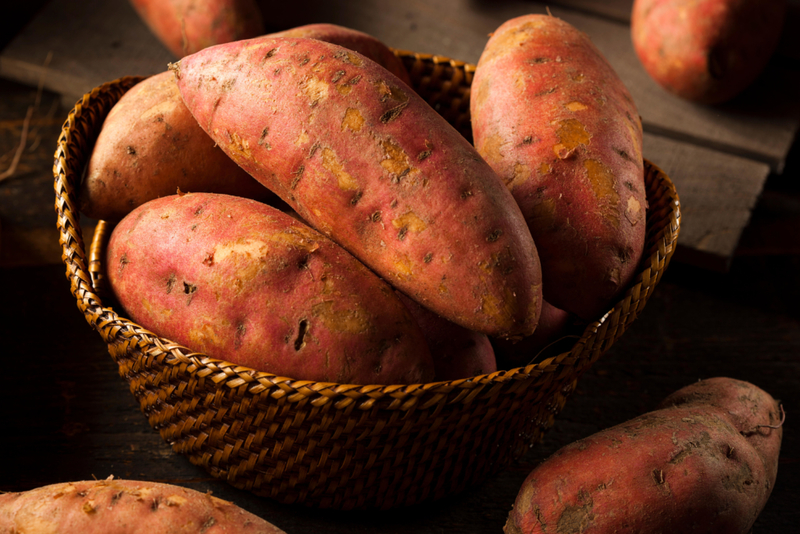
Sweet potatoes “will produce a hard center and unpleasant taste,” according to the experts over at the North Carolina Sweet Potato Commission. So if you like your sweet potato wedges sweet and well, delicious, just keep them out of the fridge, they usually last for quite long before they go bad.
What About Eggs?
In the U.S., it is advised that eggs are refrigerated. Here, farms scrub the eggs clean before selling them, and refrigeration is the only way to protect against bacteria seeping in after the natural coating that repels bacteria on shells is removed. So, the answer is yes. In the U.S., you should definitely refrigerate eggs.
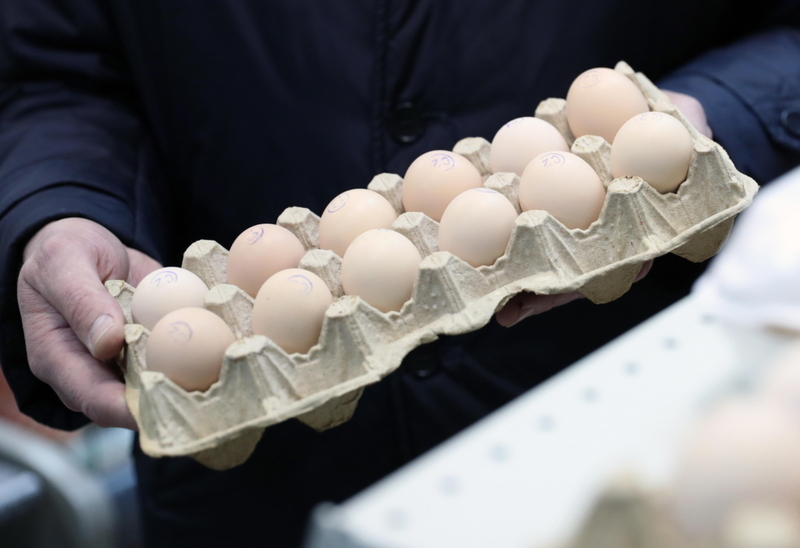
However, in Europe, eggs are not washed at commercial farms, and people do not store them in the refrigerator. Also, not washing the eggs causes a greater risk of bacteria contamination, but only if they are refrigerated. With the coating intact, eggs are protected against bacteria but only at room temp.
Don’t Store Flour In the Fridge
Flour should be stored in an airtight container or in a plastic bag. Keeping it in a plastic snap-top container makes it convenient to scoop into your recipes. Regular bleached or unbleached white flour will stay for up to two years, so it shouldn't be necessary to store it in the fridge.
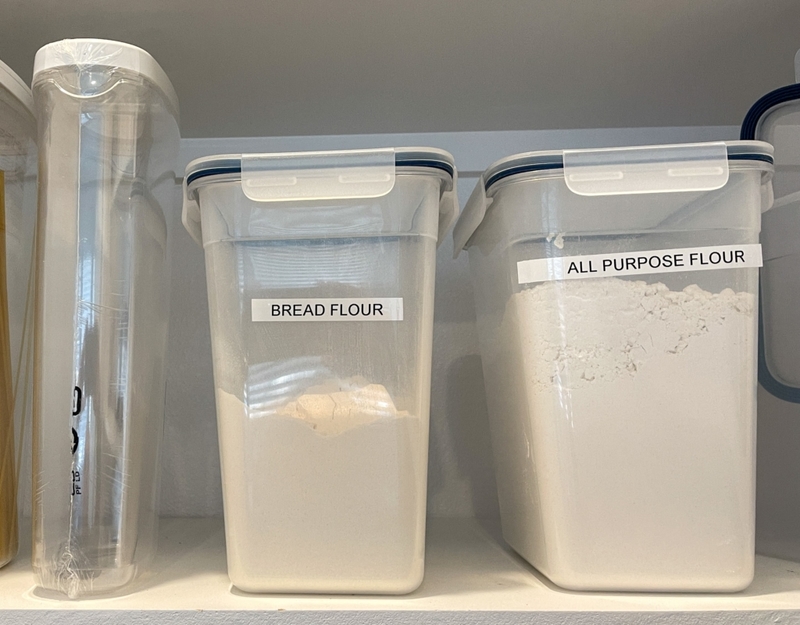
However, when you’re dealing with whole grain flours, their shelf life shrinks to just a few months, so if you need to, then you can be stored the same way. But if you know you won't use it in that short span of time, then freezing it will keep it fresh much longer.
Do Not Put Honey In the Refrigerator You Will Regret It
Once a jar of honey has been refrigerated, it will harden up and will not pour until it is heated. You can wait until it comes to room temp, but why not just leave it out? Honey is one of the most stable foods in nature and can last a very long time.
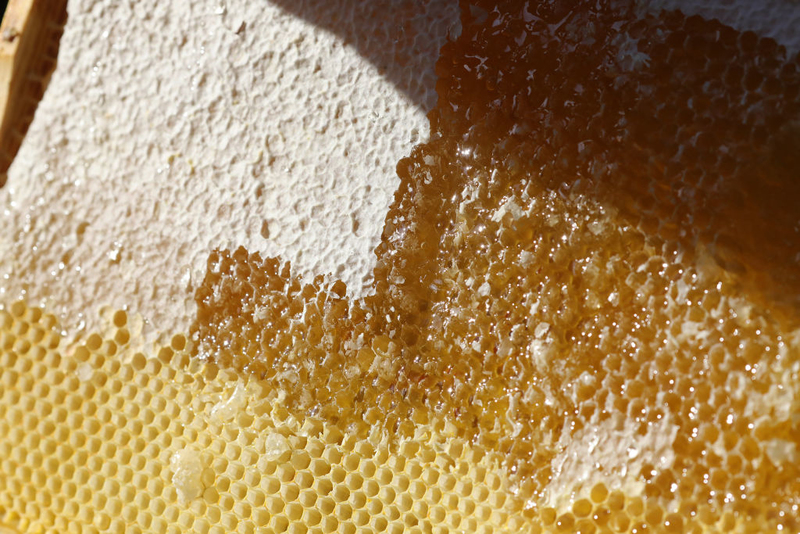
Honey has natural preservation properties. The high sugar levels and zero water content make honey a hypertonic substance, and in this environment, any bacteria will basically suffocate and die of dehydration. The good news is honey lasts forever. The honey in hives has the potential to last hundreds of years.
Best Practice Storage Tips For Coffee
First of all, coffee beans or ground coffee should be stored in an airtight container. Since air, light, and moisture ruin coffee, the container should be dark or at least impervious to light. Also, coffee beans and grounds become dry and flavorless when chilled.
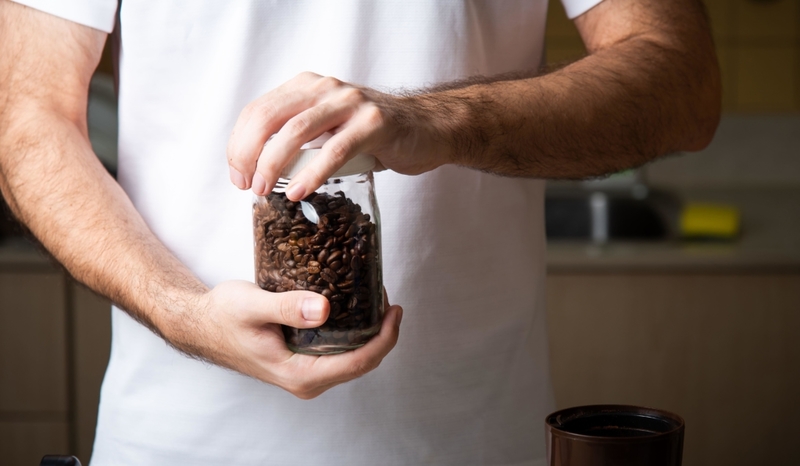
An airtight container will also protect the coffee from absorbing other flavors. Those precious beans should live as far away from the fridge as possible. It’s ideal to use it up in about two weeks. If you have to, then you can freeze whole beans to preserve your coffee if you have huge amounts.
Spare the Peanut Butter
Any brand of processed peanut butter can stay in the pantry. Keeping it on the shelf makes it convenient to use and easy to spread. Putting it in the fridge will harden the nutty spread and make it prone to drying out. Natural peanut butter lacks hydrogenated oils and preservatives that allow pantry storage.
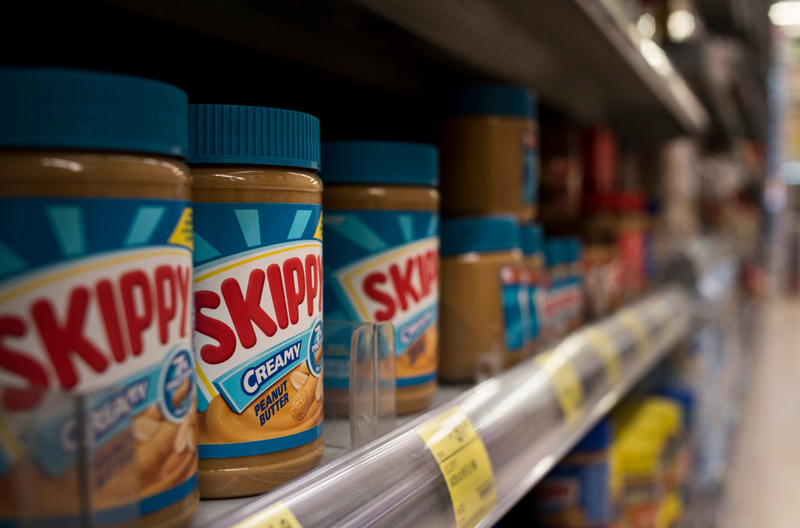
So if you like to buy that type of peanut butter, you might need to keep the jar in the refrigerator. If you know it’s going to be months before you finish off a jar of processed peanut butter; you can stick it in the fridge to make it last longer.
It’s Not a Good Idea to Keep Onions In the Fridge
Some foods go bad when exposed to air, but other foods, like onions, depend on a well-ventilated environment. Keeping whole onions in the refrigerator introduces moisture, and, as an absorptive vegetable, the added moisture somehow gets trapped inside and causes the onion to get mushy inside, making it more susceptible to spoiling.
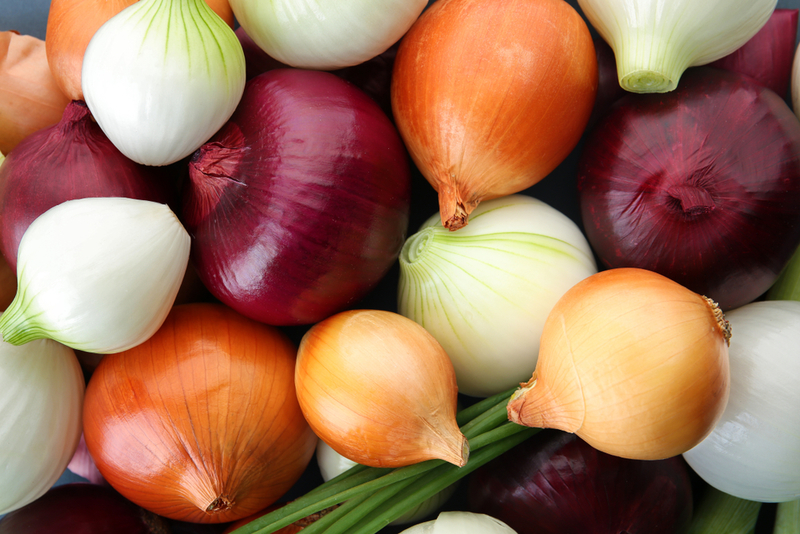
To get the longest shelf life out of onions, store them in a cool, dark place like the pantry. After onions have been chopped or peeled then it's advisable that you store it in an airtight container, on the other hand, they last at least two weeks in the fridge.
Put Pears On the Counter
Pears are unique because they ripen from the inside out. This means a pear will feel hard to the touch until it is completely ripe. At that point, you can tell it’s ready when the outer flesh of the skin starts to give. If pears are left in the fridge during the ripening process, they turn mushy and yucky inside.
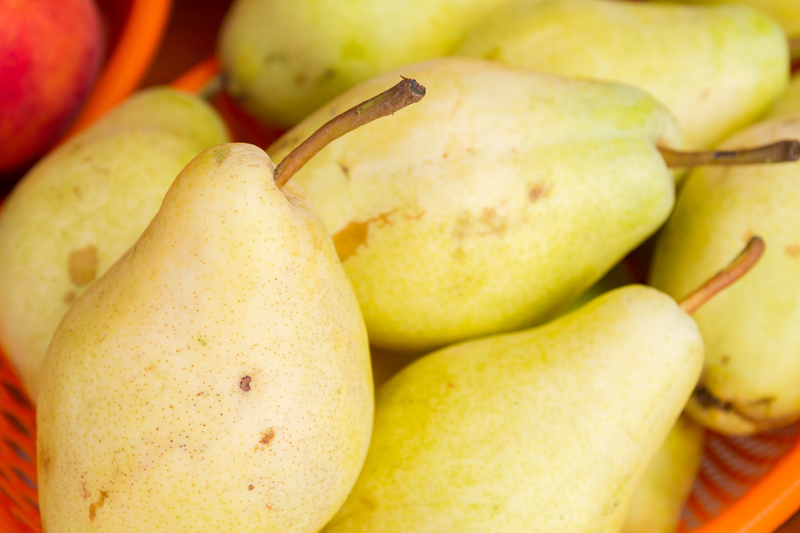
Pears should definitely be allowed to stay on the counter so the natural ripening process can occur. Once ripe, however, they can quickly become mushy, so sticking them in the fridge is a good way to keep them in their ripened state longer. Eat pears at room temp when they are sweetest and juiciest.
The Sweetest Thing
Strawberries are not only one of the sweetest fruits and most popular fruits, but they're also well-known for having the fewest calories. A strawberry is a beautiful, scrumptious berry that deserves to be treated with care. They taste best at room temperature and should be devoured within days of purchase.
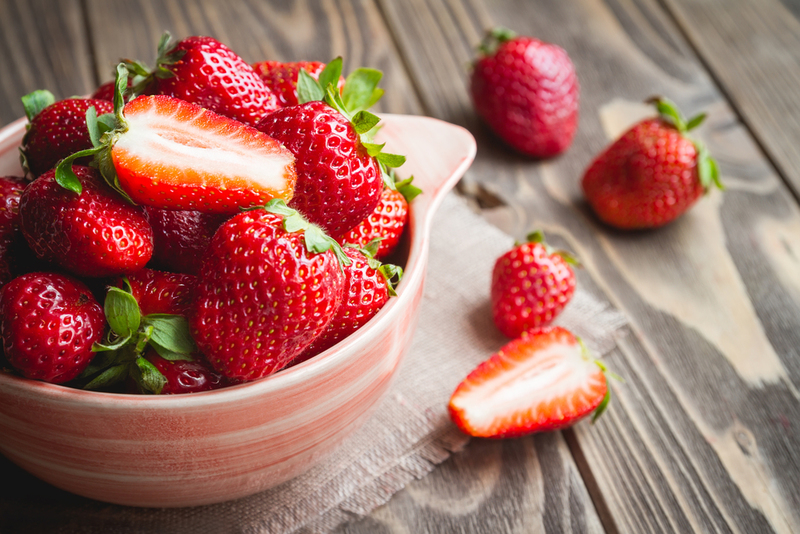
Stuck in the fridge, the berry is sapped for sweetness. On the other hand, once ripeness peaks, you can save them from rotting away by keeping them in the fridge. It’s best to wash and dry the fruit thoroughly before refrigerating. Wrapping a paper towel around them in the fridge also helps preserve the berries.
Leave Out The Jams
It seems colorful jars of jams and jellies are just what our taste buds need when making our favorite PB&J sandwich. But don’t be afraid to leave jars of jam on the counter or in the pantry, even after they are opened. Lacking enough water content to support bacteria, fruit preservatives won’t spoil.
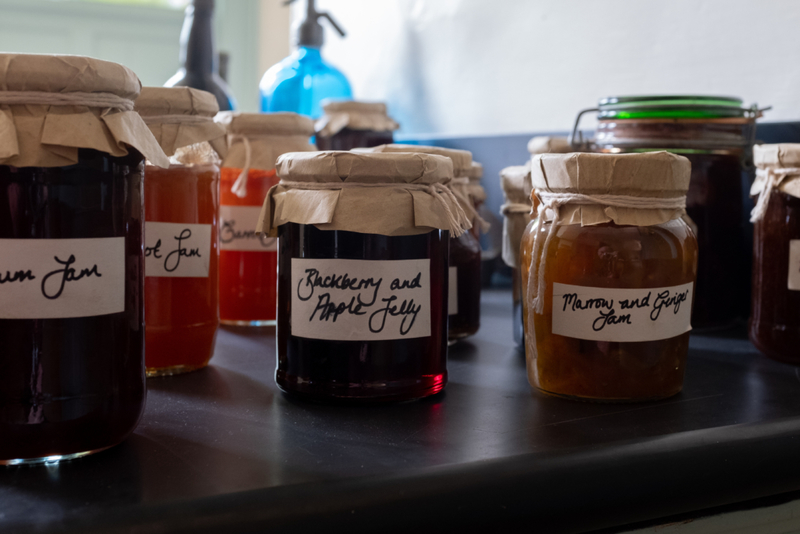
Preserved foods like jellies and jams are made to last, so they're just as safe on the shelf as they are in the fridge. Jams also have a low pH level, which means it has a high-acid solution that also prevents spoilage. Storing them in the fridge won't ruin them; there really is no need to do so.
Pumpkins Are Way Too Big for the Fridge.
First of all, there is really no room to store whole pumpkins and squashes in your refrigerator. Not only will it hog up all the space, but it doesn’t like it in there. The cold, humid environment will wreak havoc upon the pumpkin, causing it to rot inside too soon.
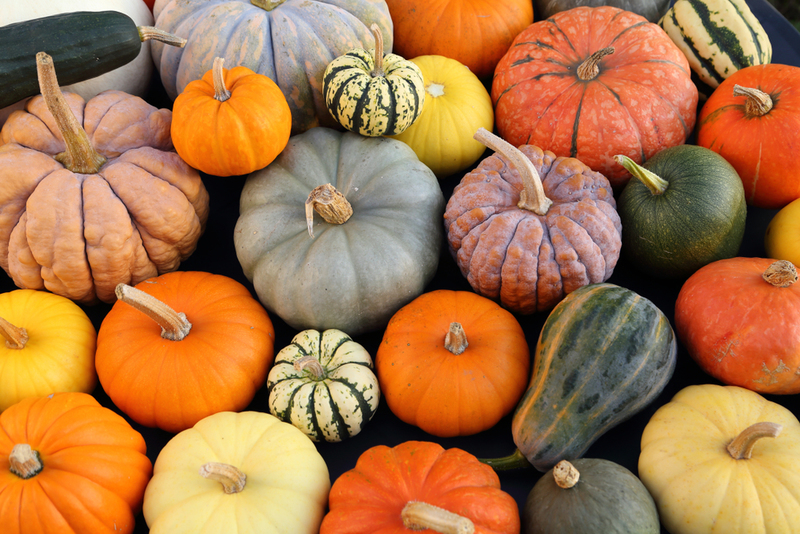
As a hard-shelled squash, pumpkins can last a really long time. They can be stored on the counter or outside for up to 90 days. Washing the outer shell with mild soap and water will extend the life of the pumpkin. Keep it out of direct sunlight and warm temps.
Keep Your Carrots Their Crispest
Pulling fresh carrots from the garden or purchasing a freshly picked bunch at the farmer’s market is an experience of culinary joy. They’re sweet, crisp, and full of beta-carotene and that pop of green makes them look super fresh. To keep them this way, one should avoid putting carrots in the refrigerator.
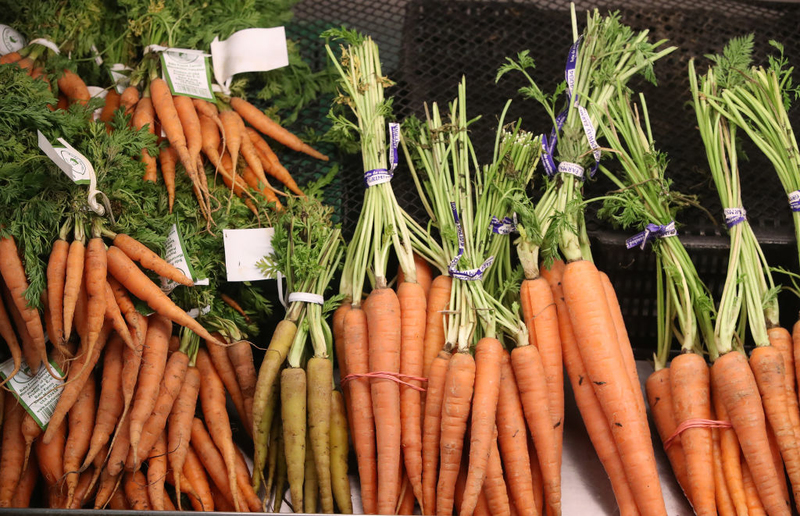
If you are not able to gobble them up before they wilt, you can best store them in the fridge by following these steps: Wash thoroughly, chop in large chunks, and cover with water. The carrots will stay crispy and submerged in a container filled with water. Some claim they will last weeks stored this way.
Keeping Basil Fresh is Easy
Fresh basil is a game-changer in many recipes; there’s nothing like it. But storing it in the refrigerator makes it limp and flavorless. To increase the shelf life of basil, place it in a jar or a pretty vase on the windowsill. It will last many times longer than in the fridge and may also begin to sprout.
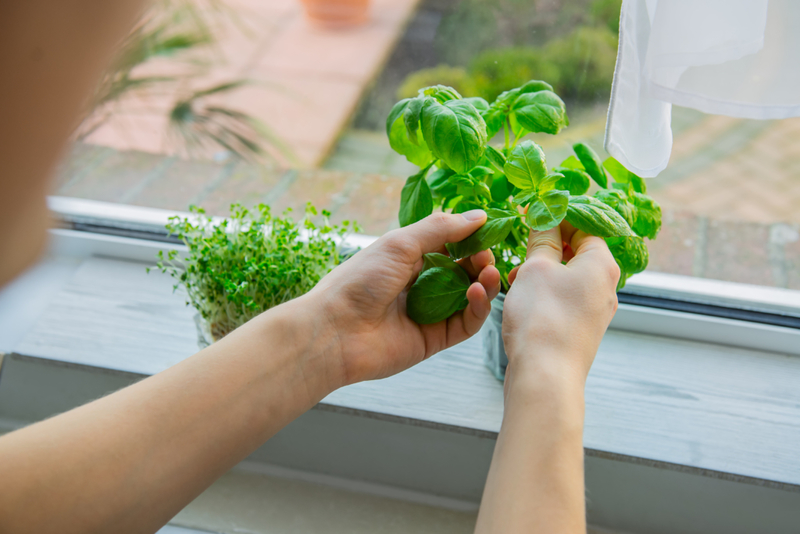
Then, you can plant baby basil plants and never run out of sweet and supple herbs. If you have way too much, a good way of preserving basil is to make it into pesto sauce. It’s a simple recipe of pureed basil, garlic, olive oil, and parmesan, and it lasts in the fridge for weeks.
No Need to ‘Refrigerate After Opening’
Most people store salsa in jars in the refrigerator. But, if your fridge is short on real estate, you can just leave it out, even after it is opened. Canned salsa jars are often packed with preservative ingredients like vinegar, citrus acid, and salt, which keep them safer for longer.
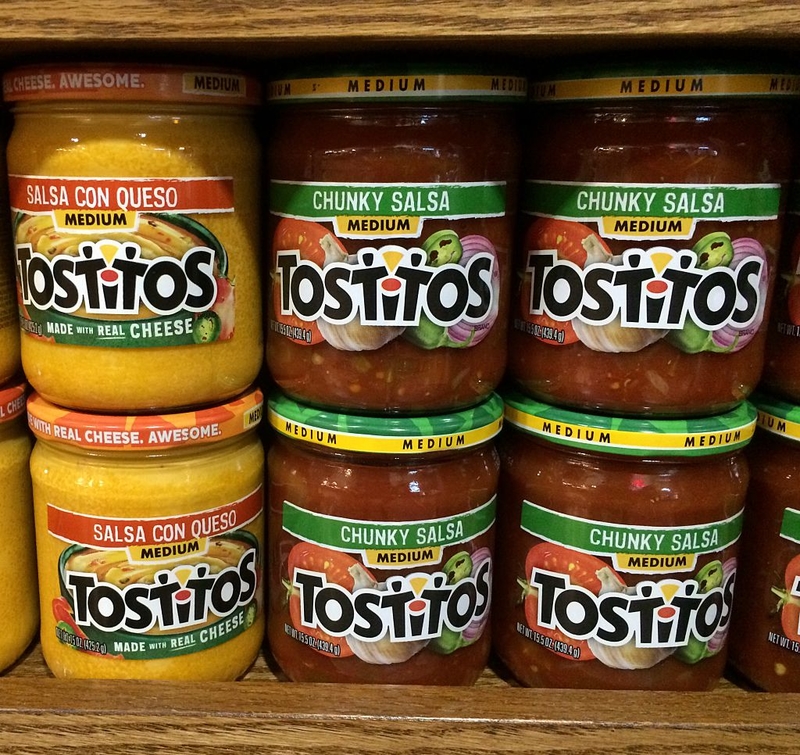
But if you serve it, just make sure that dipping into the salsa is done with a spoon. Otherwise, pour some salsa out into a bowl to serve in order to keep the original jar clean and free of leftover nachos. Food remnants inside jarred salsa will cause it to go bad very soon.
Mustard Has a Long Shelf Life
If you're an avid mustard fan, you'll probably know you can keep your jar or bottle in the pantry or on the table. It is filled with natural preservatives and will not spoil while sitting out. A jar of mustard can last up to two to three years beyond its expiration date.
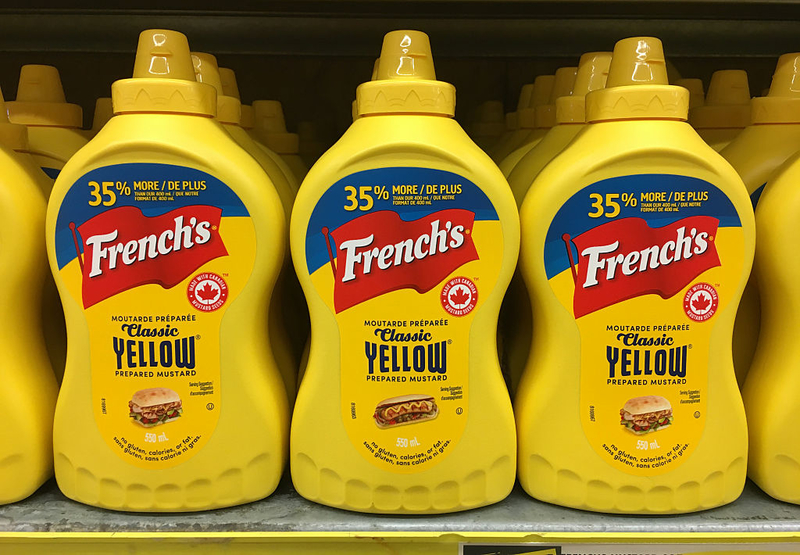
Not only is mustard preserved with vinegar, but it also contains no sugar and no fat, making it a great condiment to have on hand. Storing it in the fridge does increase its shelf life. However, if you like a honey and mustard version, then you should probably keep it in the fridge.
Keep Your Dried Spices Dry
Storing dried herbs and spices in the refrigerator is not a great idea. The cold, damp air of the fridge is only going to cause mold to grow. Taking the spices in and out of the fridge for use shortens the shelf life by putting extra stress on the leaves.
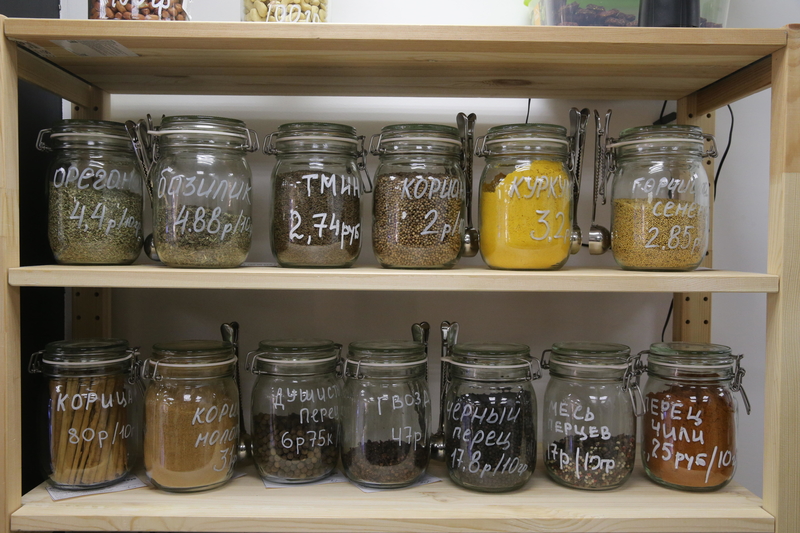
Light, moisture, and air are natural enemies of dry leaves and spices. However, some seeds like poppy or sesame can be stored in the fridge, and may even prefer it. Red powder spices like cayenne and paprika also do better in the fridge, which helps them hold onto their vibrant colors.
Should You Refrigerate Potatoes?
If you want your potatoes to last a long time, you can store them in the fridge. However, it should be known that you are selling the soul of your spud by doing so. The cold air inside the fridge creates a chemical reaction inside the potato that proves detrimental to taste.
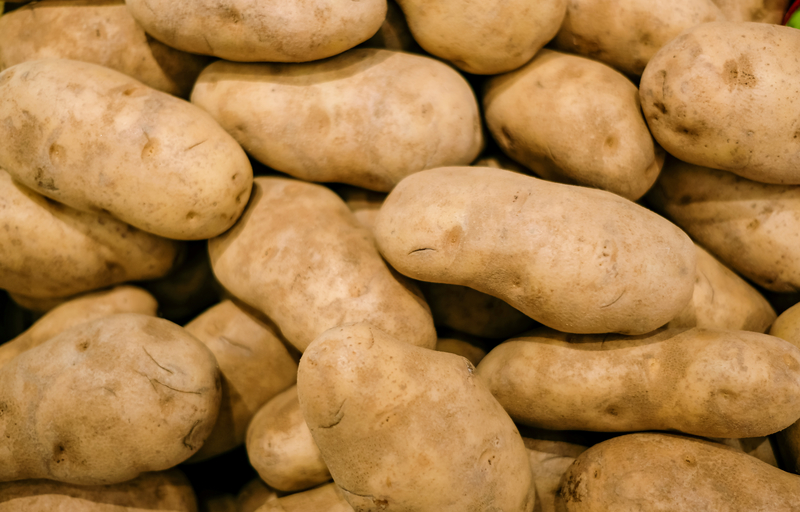
Starch turns to sugar, and spots, premature sprouting, and a bitter taste result. Potatoes are known for storing well, only growing sprouts after a long time. So, to make the most out of your potatoes, you can keep them in your pantry, in a cool, dark place above 50 degrees.
Vinaigrette Salad Dressings Can Sit Out
There is no reason to refrigerate vinaigrette salad dressing. Refrigeration causes it to congeal and thicken, making it inconvenient to use. If you don’t remember to take it out of the fridge before your serve dinner, it’s a blob of unusable gel. Besides that, dressing tastes better at room temp.
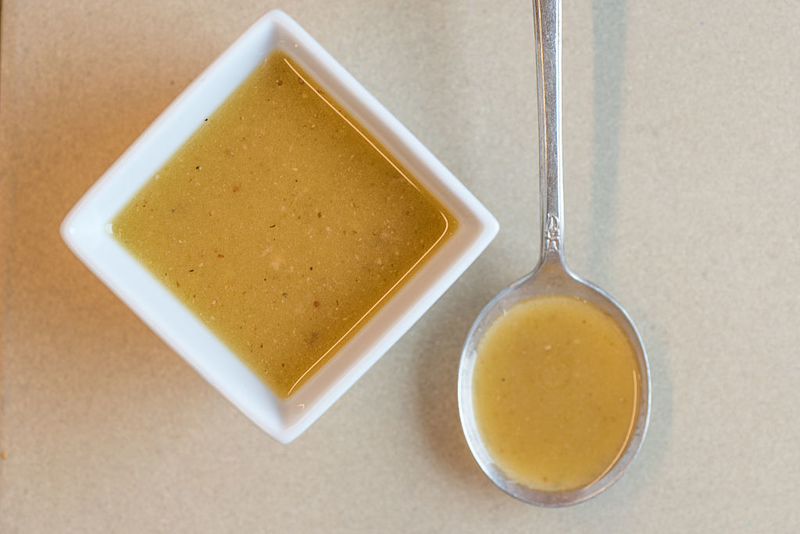
Ingredients like vinegar work as a great preservative; however, one thing to consider is that the shelf life of vinaigrette is shortened significantly by ingredients like garlic and lemon juice. It gives your dressing a tangy zip, but it will only last a few days, whether refrigerated or left out.
Treat Your Chocolate With Love
Chocolate should also be stored in a cool, dry place. The optimal storage temperature is 65 to 68 degrees Fahrenheit. Chocolate should be sealed inside a container. But, most importantly, chocolate should not be refrigerated. The cold air can cause the sugars to rise to the top and discolor it.
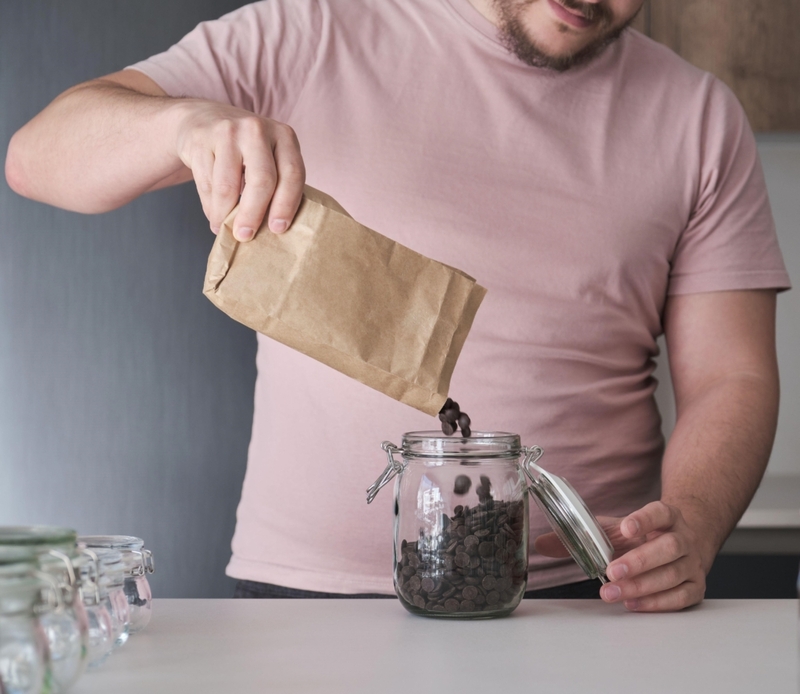
Which you may have seen if you've stored your Hershey's Kisses in the fridge. However, this does affect the flavor as chocolate is absorptive, and storing chocolate in the refrigerator will contaminate the candy with other flavors in the fridge. Leftover salmon or garlic chicken will not pair well with your chocolate.
Cans of Tuna Stay in The Pantry
It probably goes without saying, but there is absolutely no need to store cans of tuna in the refrigerator. Canned tuna is made to last a long time. So not only will they take up space, but they will stay past their expiration date in the pantry just as long.
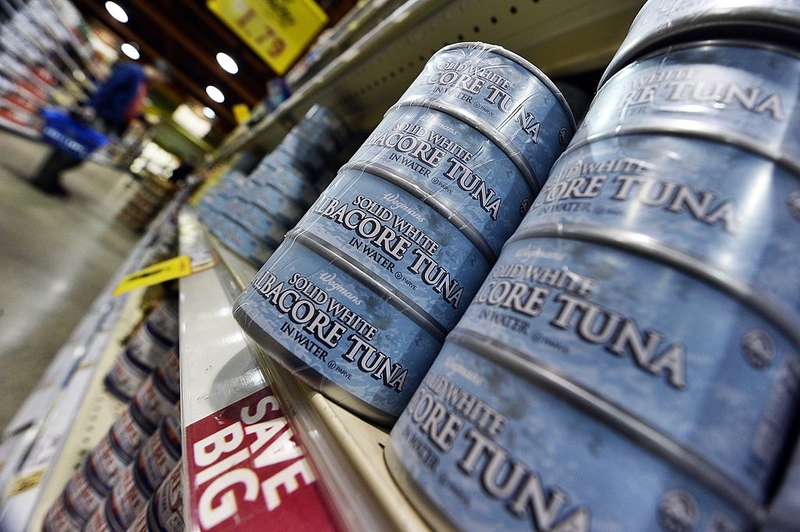
Tuna fish was canned in order to preserve it without refrigeration in the first place. The only reason you'd need to keep it in the fridge is if you love eating cold tuna; who knows? Maybe it's summer, and you'd much rather have a cold tuna salad than a warm one.
Soy Sauce is Preserved by Fermentation
Don’t worry about storing soy sauce in the fridge; it can last a year just sitting out on your table or in the pantry. Because soy sauce is fermented, its chemical composition allows it to withstand warmer temperatures without spoiling, which is why those little Chinese takeout packets do just fine in your office desk drawer.
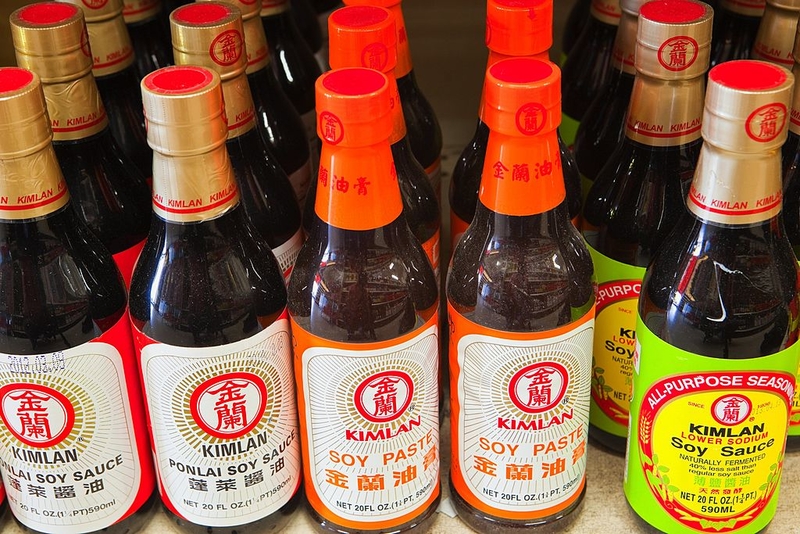
Fun fact: the fermentation process preserves the condiment naturally, and an opened jar will keep its flavor for up to a year and a half. So, there is no need for your soy sauce bottles to take up space in the fridge; you can keep them in the pantry, and they'll be fine.
Do Not Injure Your Cucumbers!
Take everything you ever knew about cucumbers and throw it away. According to the Postharvest Technology Center at UC Davis, cucumbers are best enjoyed at room temperature. Cucumbers should last up to 14 days, with decomposition set in thereafter.
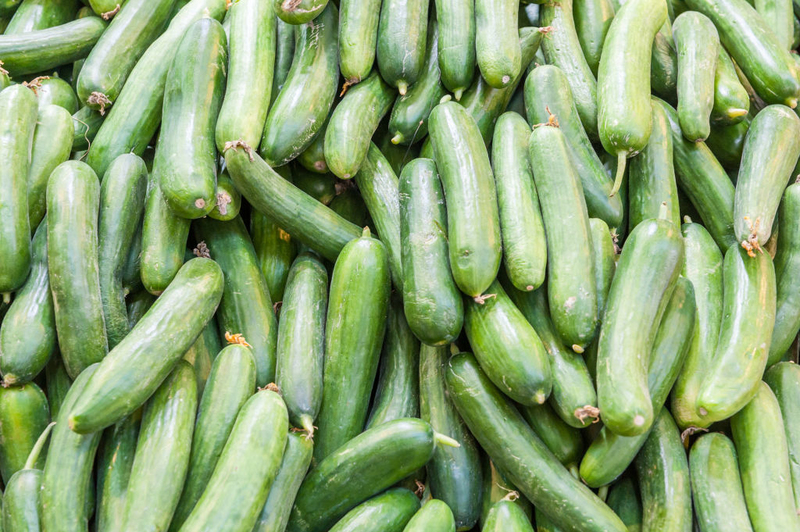
Cucumbers are actually fruits, and both cucumbers and melons are members of the Cucurbitaceae, or gourd family. So in this case, refrigeration is not recommended. The folks at UC Davis say refrigerating causes a “chilling injury.” Pitting, accelerated decay, and sogginess results. Chilling injury generally sets in after 2-3 days of refrigeration.
Don’t Chill Your Red-Hot Chilies
Chili peppers are believed to have come from South America and grow best in warmer climates. This is why they do best sitting out at room temperature, as they can stand the heat! Storing them in the refrigerator will extend their shelf life, but the cold temperature will sap their flavor.

To keep your chilies as spicy and flavorful as they were when they were first picked, keep them on the counter in a bowl where everyone can appreciate their fierce and fine colors. Many people also choose to dry them, which will preserve them for longer and make them even spicier.
Pineapple Is a Tropical Fruit
Pineapples, which are native to the Caribbean, Brazil, and Paraguay and are a major Hawaiian export, have some incredible health benefits, however, they are ill-suited for the refrigerator. Especially during its vital ripening stage. If you want to serve your pineapple at its sweetest, let it stay out on the counter to ripen.
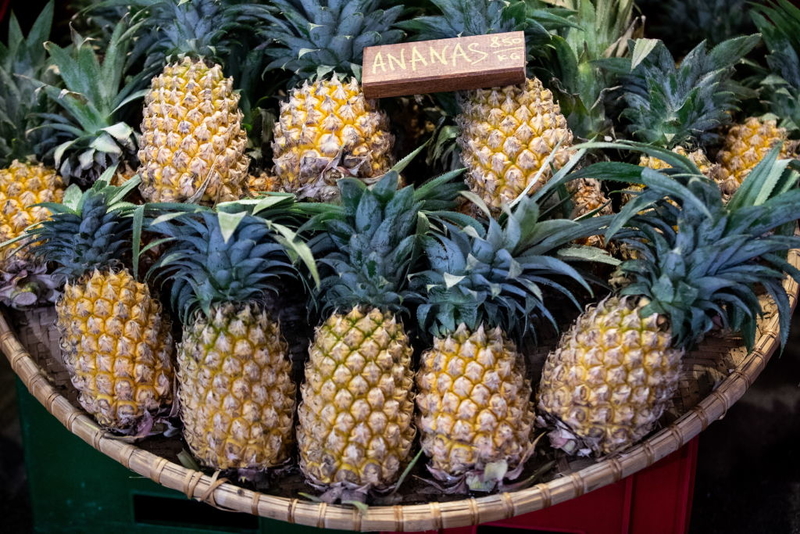
Once it gets to the perfect ripeness, a stage that you can detect by the sweet aroma emanating from the base of the fruit, cut it open. Eat it right away or store the pieces in an airtight container in the fridge. There is nothing like a perfect, sweet, and juicy pineapple!
Ketchup or Catsup? However You Spell It, It Won’t Spoil
Almost every home in America has a bottle of ketchup, and that's largely thanks to Heinz, the company that started selling their ketchup in 1876. Ketchup is a condiment made of tomatoes, vinegar, and sugar. Vinegar and sugar are natural preservatives. Its natural acidity means an unopened bottle can still be used up to two years after its sell-by date.
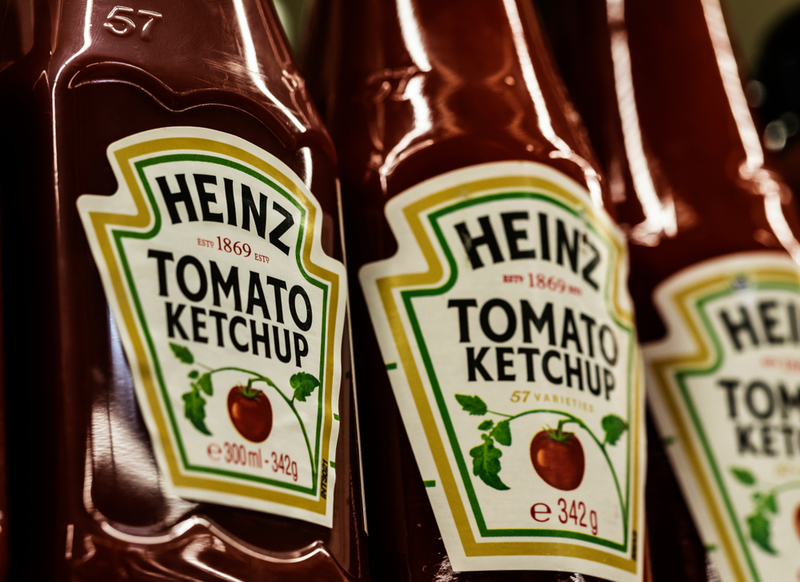
If you love ketchup and enjoy having ketchup with most meals, feel free to leave it on the table, especially if you prefer it at room temp. That’s what they do at restaurants, after all. Ketchup can sit out for well over a month. In the fridge, it lasts forever.
Refrigerators and Bananas Don’t Mix
If you want to ruin a perfect banana, stick it in the fridge or the freezer. It will turn black as death and develop a texture like mush. Native to the tropics, bananas are made to sit out and slowly ripen. They get sweeter with ripeness, like many fruits, and should be eaten at your desired ripeness.
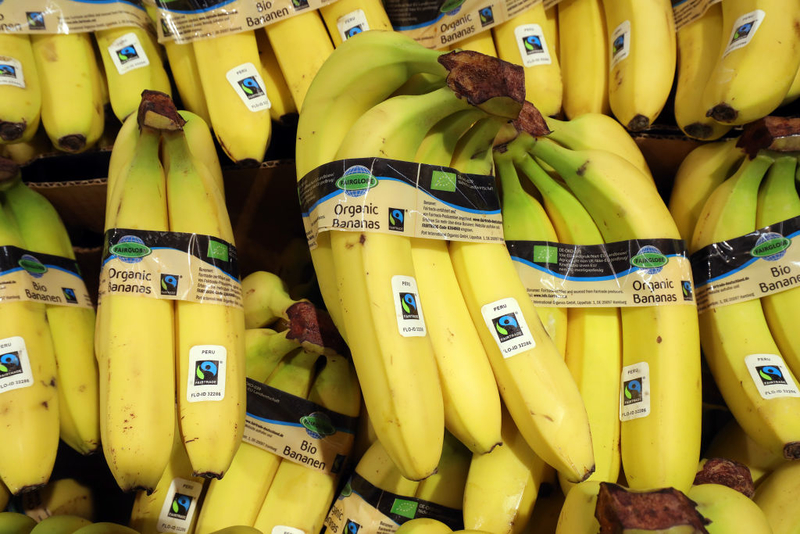
Once they have turned that corner and your bananas have started to blacken, you can peel them and place them in an airtight container in the freezer, which can then be used to make smoothies or banana bread in the future. The darker, the sweeter, making overripe bananas great in many recipes.
Butternut Squash
Butternut squash is a winter favorite, but there's no reason you can't enjoy a butternut squash throughout the year. The skin works well to protect the flesh, so whole butternuts should be stored at room temperature as moisture from the fridge can ruin the vegetable's quality and even wreak havoc on the pulp.
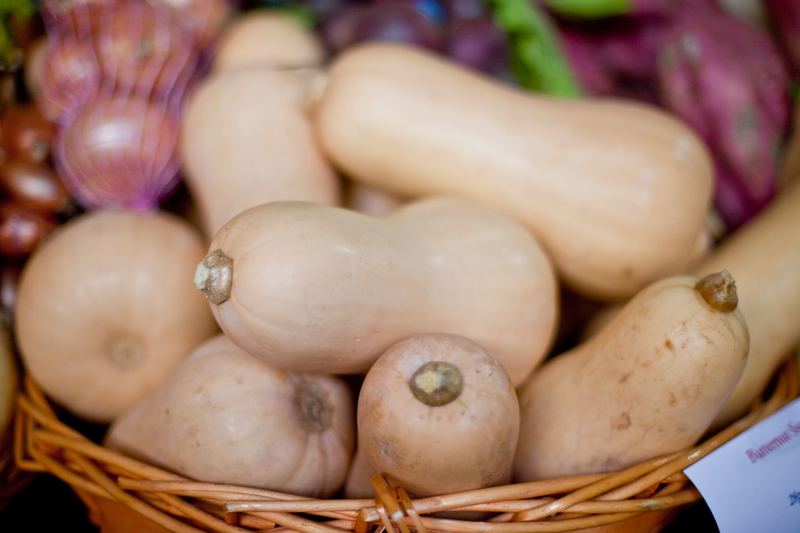
Once it's been cut, though, it's an entirely different story, and the smaller pieces should be placed in an airtight container in the fridge for a few days before being prepared and eaten. Just don't leave the prepared butternut in the fridge for too long otherwise the pieces can start to go mushy.
Cake
There are plenty of delicious cakes out there, but it would be a shame if it's ruined by not being stored properly. As with many baked goods, cake suffers from debilitating dryness when placed in a cold environment. Covered on the counter, it should stay good for about a week.
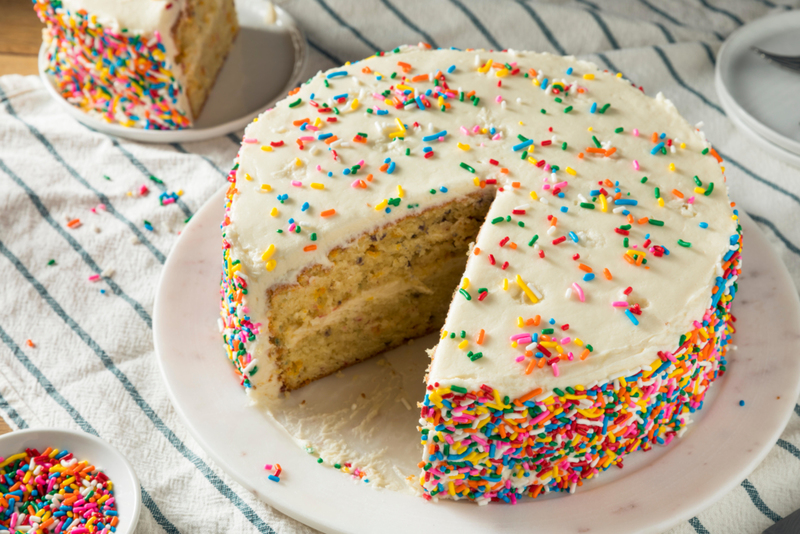
But really, who takes a whole week to finish a cake? If you want to be extra safe, you can store your cake in an airtight container. Otherwise, it might attract insects like flies and ants. If your cake has icing made of cream, then you'll have to refrigerate it.
Hot Sauce
Nothing adds excitement to your meal like a drizzle of hot sauce. So, while hot sauce may be easy to love, many people don't know how to store it and often keep it in the fridge. This sauce usually has a lot of vinegar, which helps prevent bacterial growth, so it's totally safe to keep outside the fridge.
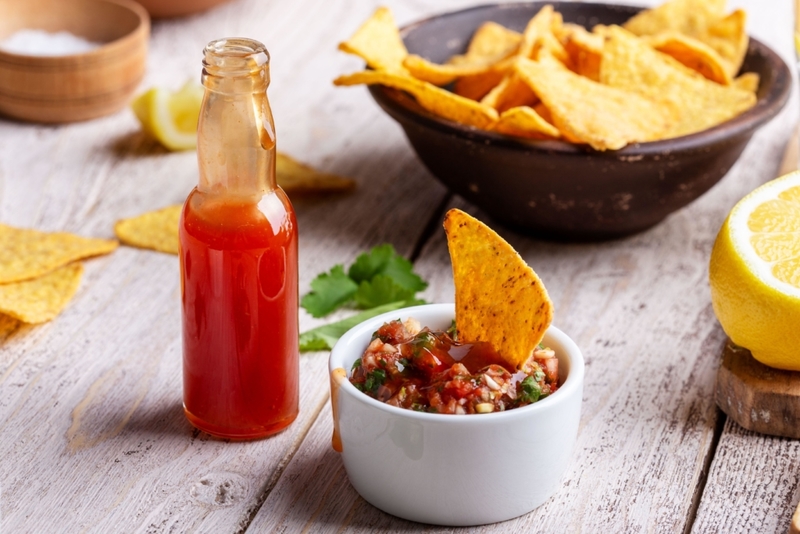
It's this acidity in the vinegar that can cause the hot sauce to dull when left in the fridge. Leaving it out maintains that spicy swag that keeps us reaching for more. Like many other foods, the heat of the chili will also be much more potent if it's kept at room temperature.
Dried Fruit
Regardless of your favorite fruit, dried fruit remains a healthy way to get your recommended dose of fruit. Whether you eat it in trail mix, use it as a topping for yogurt/oatmeal, or enjoy it by the handful straight out of the bag, dried fruit can be a nutritious snack.
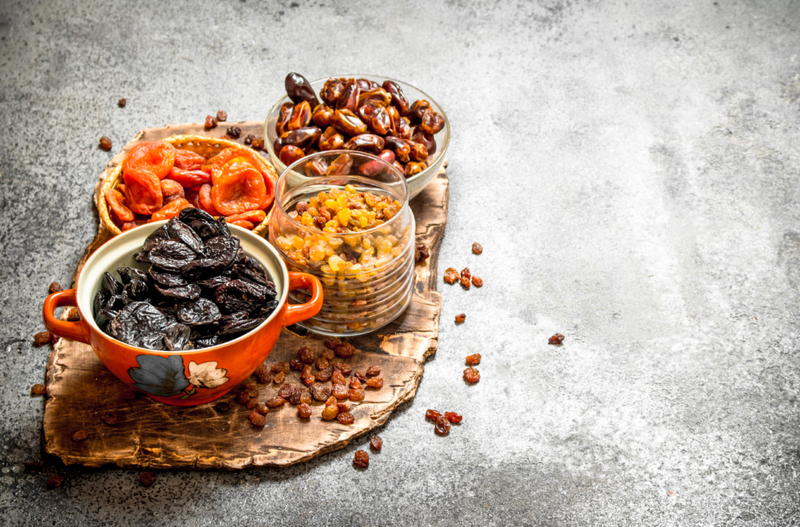
If you like munching on these, you'll probably have a few jars in your kitchen. But these tasty delights are best preserved somewhere dry and dark, like your pantry, while putting them in the fridge will only add unwanted moisture. When kept correctly, they may last for up to six months.
Syrup
Fewer foods are more delicious and comforting than a warm plate of fluffy pancakes smothered in maple syrup. But nobody really wants cold syrup on their warm food that's ready to eat, so it's totally okay to store your syrup in the pantry if it's dark and on the cooler side.
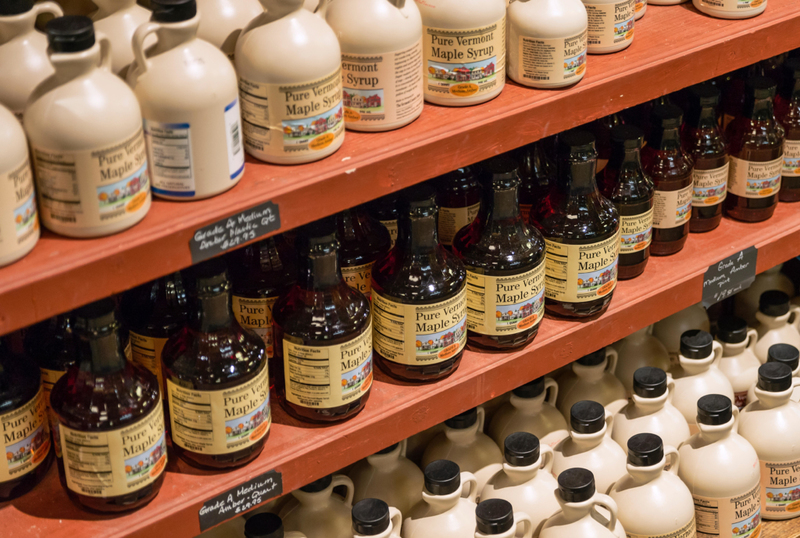
However, if you live in a warmer climate and your kitchen gets pretty hot in the summer, you might want to store your syrup in the fridge during the summer. Some syrups will harden in the fridge, so be sure to take it out a few hours before serving so it pours nicely.
Pastries
Pastries are akin to the glamorous stars of the bakery world. Shiny glazes catch your eye, and the dash of powdered color hints at sweet raisins or chocolate chips. There is nothing quite like the flakes of buttery baked pastries, but to keep them just right, they are best wrapped in a paper bag and stored at room temperature.

Placing your pastries in the fridge means they'll just end up limp and soggy from the inevitable condensation, which will also compromise their flaky texture. If you must, though, you can store them for a few hours before and just take them out before serving. Pop them in the microwave for a few seconds if you prefer them warm and toasty.
Peaches
Few things feel more like summer than sinking your teeth into a perfectly ripe peach. With a familiar fuzzy skin and succulent yellow fleshy pulp, peaches are incredibly versatile. Their natural sweetness and juiciness also lend well to baked peach pies and tarts, stewed fruit dishes, or simple peach crisps.
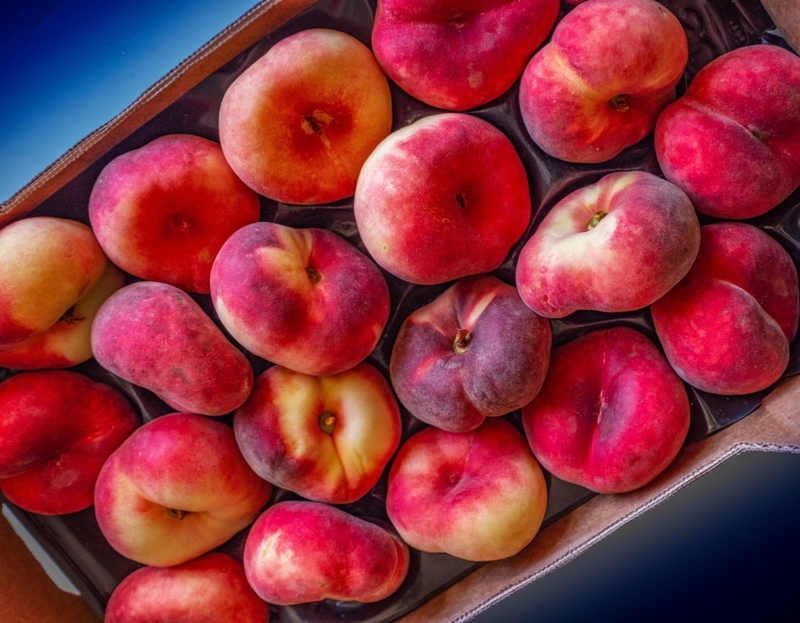
But if your peaches are ripe and ready, don't be tempted to stick them in the fridge. Like most fruits, colder temperatures hinder their ripening process and can hamper their texture. It's best to store them in a fruit bowl and only chill them once they're ripe and ready to eat.
Nutella
When it comes to sweet spreads, nobody does it like quite Nutella. Everybody loves this stuff, no matter how unhealthy it is for you. But when it comes to this delicious condiment and slathering it over a slice of bread, it's not so easy to spread it once it's been chilled in the fridge.
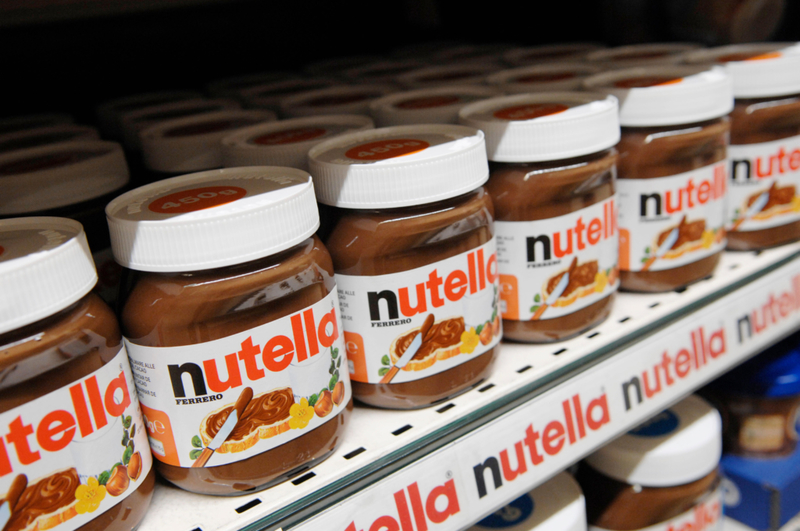
So, while it goes without saying, it's always better left outside at room temperature. But you probably knew that already, didn't you? The chocolate flavor is also much more distinctive when the jar is stored outside, so make sure the lid is on tight and pop it in the pantry.
Butter
Butter is virtually unspreadable when it's taken straight out of the fridge, so in most cases, it’s totally fine to store butter in a covered dish on a countertop for a day or two. However, you don’t want it to melt or go rancid, so transfer it somewhere cooler.
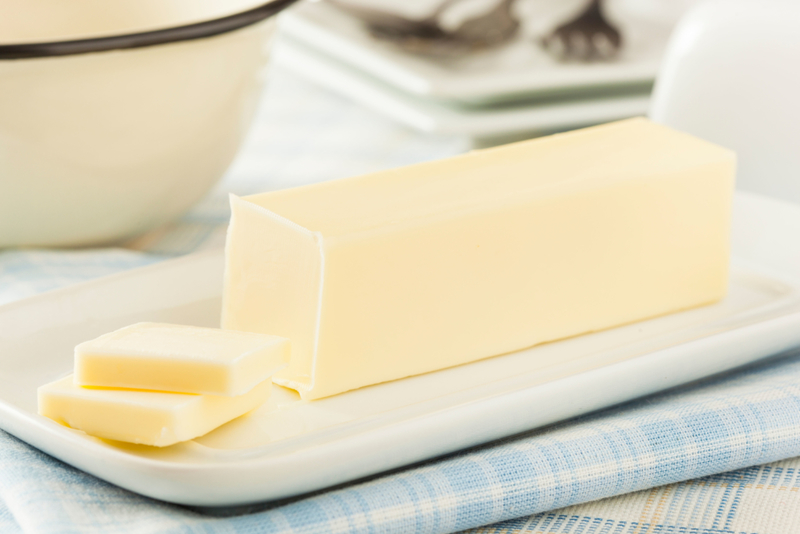
Be sure to keep it out of direct sunlight in the sweltering hot months of summer. But if you don’t plan to use butter in the next few days, it’s best kept in the fridge. Then a few hours before serving you can take it out to let it 'settle' before so it gets soft and spreadable.
Bell Peppers
Bell peppers are at their best when they're crispy and fresh, but storing bell peppers at low temperatures can cause the skin to soften and disintegrate. To avoid this, you can store your peppers in the pantry. But if you have to, the fridge will be fine for a few hours if it's hot outside.
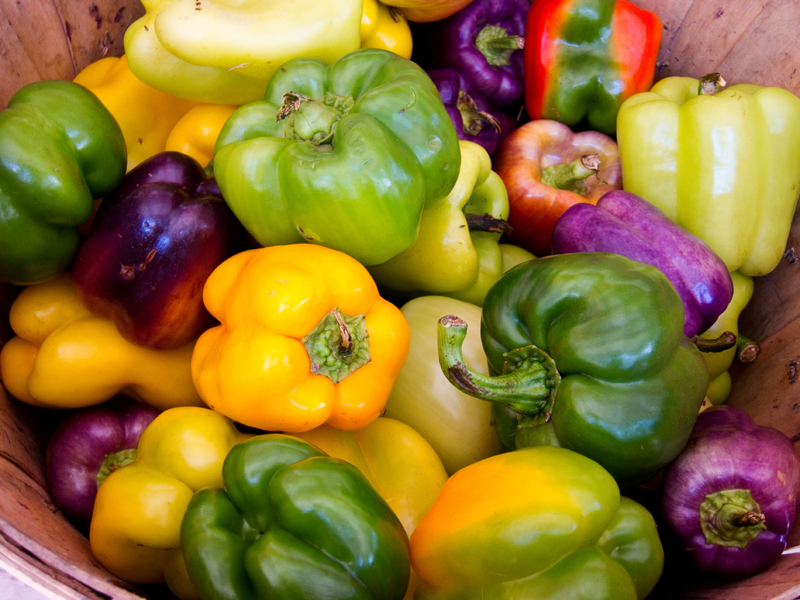
That should be enough information about bell peppers to prevent you from becoming the annoying person lingering in the kitchen the next time you're wondering if you should put your peppers in the fridge. Now you'll be the expert that everyone asks about what should and shouldn't stored in the fridge!
Molasses
Molasses is the thick, dark liquid that's left after refined sugar has been crystallized from sugar cane or sugar beet juice. This sweetener is probably best known for its appearance in gingerbread cookies, but it can also be used in marinades and sauces. You can even use it as a substitute for syrup!
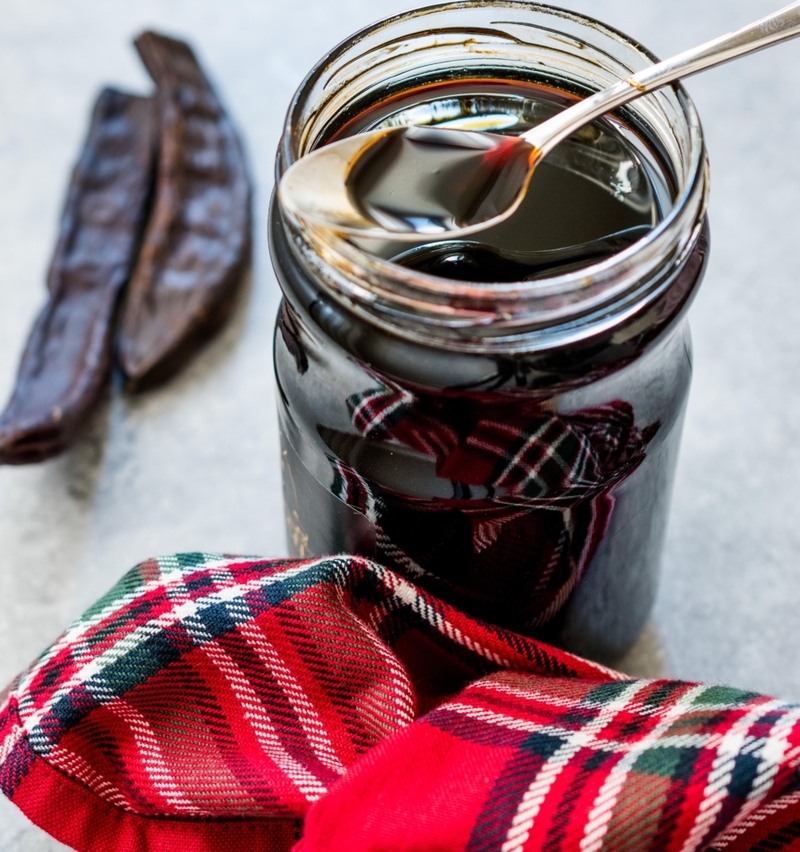
It's known for being a much more nutritious sweetener than most, but it's pretty difficult to scoop, so storing it in the fridge will make it nearly impossible to get out. Luckily, molasses won't spoil if left out, so you can safely store this product outside of the fridge in your pantry.
Fruit Pies
Everyone and their mother love a decent slice of pie. Whether it's apple pie, peach pie, or even blueberry pie, that delicious combination of stewed fruit and flaky pastry can't be beaten, but how exactly do you store such a delicious dessert so it won't go bad or ruin the taste?
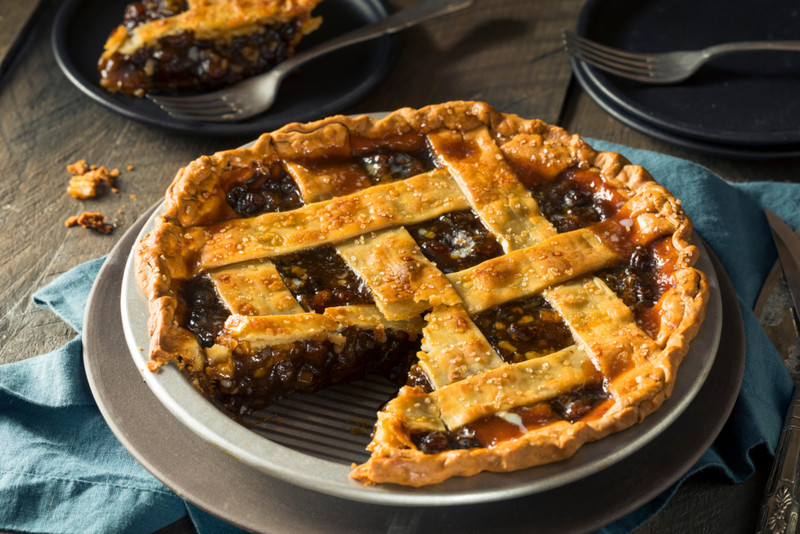
According to experts, you've got about two days to leave your fruit-centric pies out on the counter but be sure to properly wrap or cover them. If you still have some pie left after day two, you can store it in the fridge. But any cream-based pie will need to be refrigerated from the beginning.
Supplements
If you're one of the millions of Americans who take supplements, you may have been told that storing nutritional tablets in the refrigerator will help extend their shelf life. Not only is this mistaken, but most supplements do not belong in the cold. For some others, they fare much better when stored in the fridge.
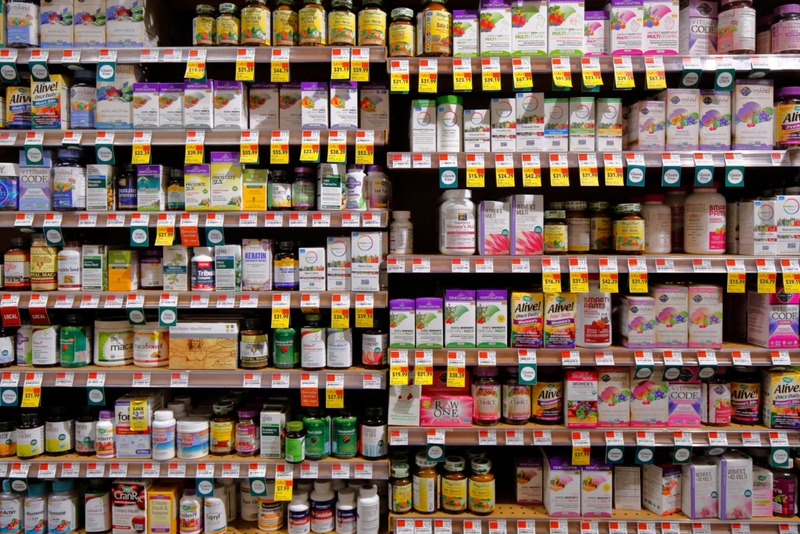
With so many supplements on the market, there's no one-size-fits-all rule as to where to keep each bottle. Generally speaking, the best place to store your supplements is in a cool, dry place. But if you have probiotics, they should usually be kept cold, so be sure to check that the pharmacy stores them in the fridge as well.
Hot Food
Is your piping-hot bowl of soup going straight to the fridge? Stop! You might want to wait for it to cool down to room temperature before putting it in the fridge. In our bid to wrap up all the kitchen work in a jiffy, we often end up putting foods that are still hot in the fridge.
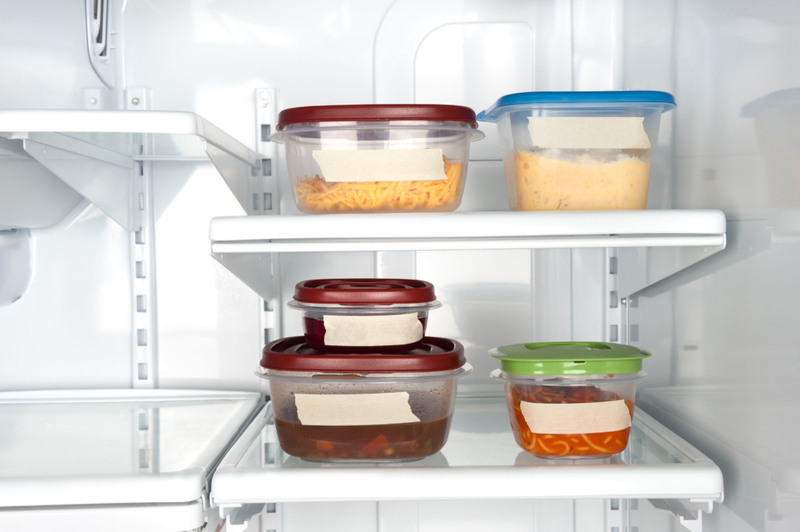
Did you know this can actually be dangerous for you and your family? If you immediately put hot food or hot liquids in the refrigerator, you may lose its nutritive value and might just make your fridge work extra hard. It is okay to put mildly hot food in the refrigerator, though.
Oranges
Citrus fruits are at their juiciest when plucked straight from the tree, especially oranges. Once picked, the fruit begins drying out as it's removed from its water source and begins to decompose. So placing oranges in the refrigerator can help slow down the process as it helps retain some moisture.
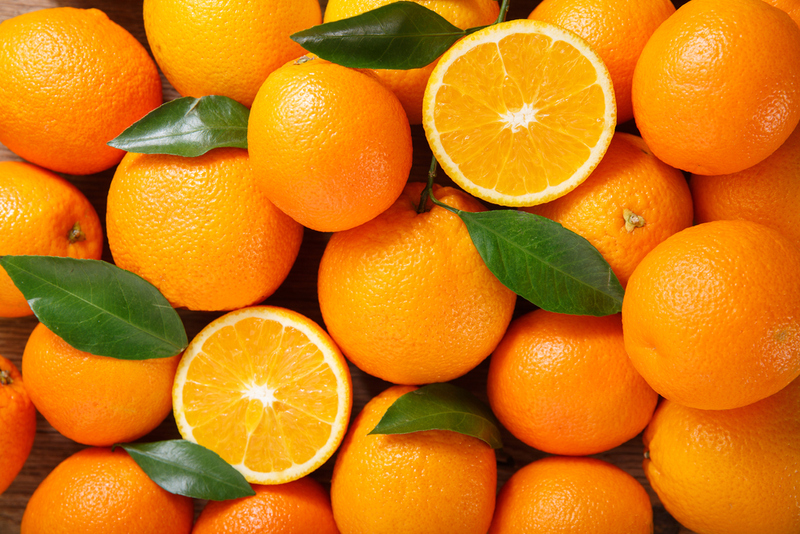
However, if you want your orange fruit to be extra sweet, we recommend leaving it out at room temperature. But if you bought a whole bunch at the supermarket and need to store some so they don't spoil, then it's best to store them in a bag in the fridge.
Sugar
In some hot states, during the extremely hot months, ants and other pests invade the home and find their way into the kitchen. They are able to smell sweet items, such as sugar, from miles away, and before you know it, your sugar jar is filled with small black objects collecting their winter's loot. However, placing the sugar in the fridge is a big mistake.
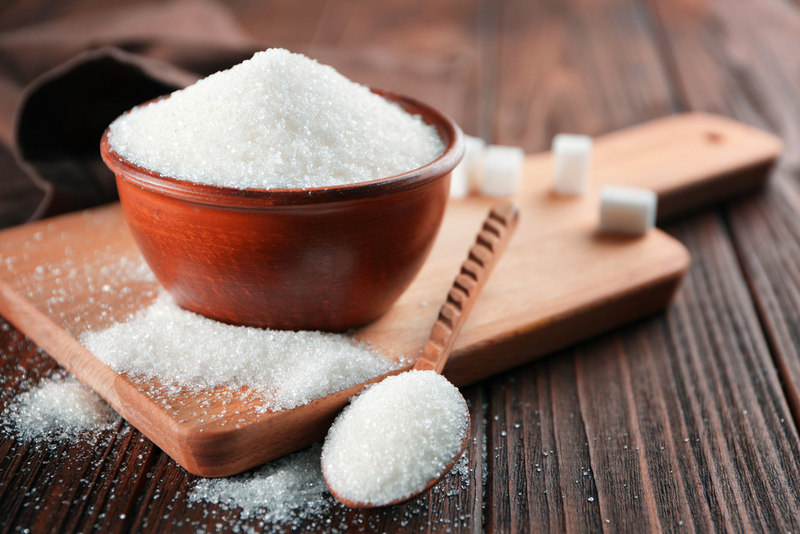
Instead of having a pure white natural sweetener, you will end up with lumpy and rock-hard sugar. It will be almost impossible to spoon about a precise serving, and your bakes, cups of coffee, and anything else you add sugar to will be either too sweet or not sweet at all. Instead, just make sure that the sugar is held in a sealed, temperature container.
Mango
Mangos grow in naturally warm climates, and as such, they are averse to cold. In harsh environments, the quality of the skin and the sweetness inside the flesh begins to decline once it gets cold. Manogs also ripen best when stored at room temperature.
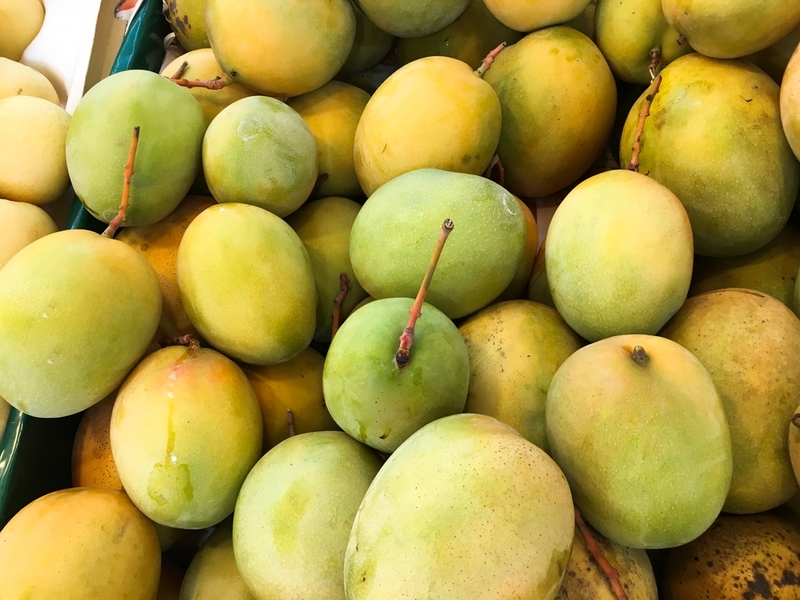
Let this sweet and delicious fruit keep their youthful appearance by storing them on your counter, where you can keep a watchful eye for once they're ready to eat. Once the fruit is ripe, feel free to cut it up, and if you need to keep it a little longer, only then store it in the refrigerator.
Fresh Herbs
When we say fresh herbs, we are referring to rosemary, parsley, mint, and all their relatives. These aromatic gems turn every dish into a celebration. Their green lives make everything look fresh and exciting and provide unique and delicious flavors that once you start using them in your kitchen, there will be no going back.
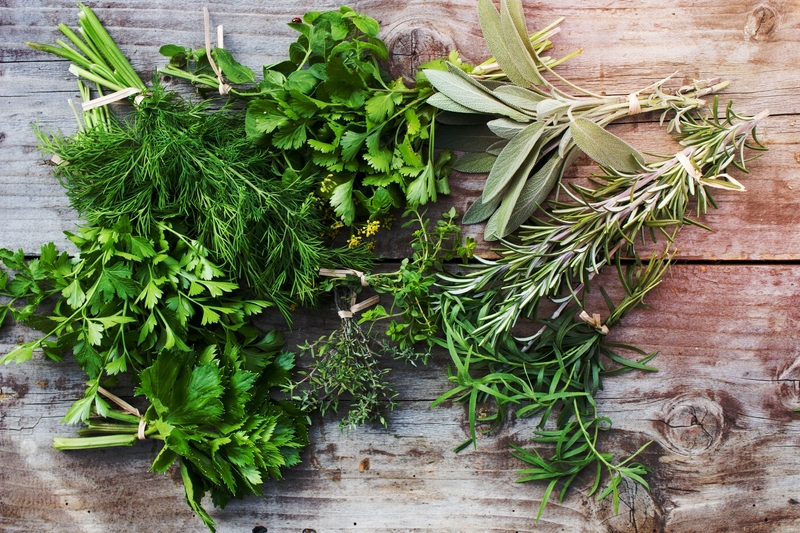
Rule number one — do not place them in the fridge. The crispy leaves will get damaged by the cold air and the moist levels they will be exposed to. They will lose their nutritional value, and instead of fresh and bright green stalks, they will look tired and lame.
Champagne
This next one is about our lovely bubbly. Our longtime favorite is Champagne. We are not talking about your NYE party when everyone is expecting to get a taste of their favorite liquid refreshment. Champagne must be served chilled, however, there are rules for storing champagne when you are not planning to drink it right away.

Keeping the bubbly in the fridge for more than three or four days will damage the cork and ruin the delicate and beautiful flavors of the French delight. If you are not planning on entertaining and don't think you are going to open the bottle in the near future, store it in a dry place and away from sunlight.
Lemons
Nothing is more enjoyable than a cold glass of tangy lemonade on a hot summer's day, and nothing is more annoying than rock-hard lemon being taken out of the fridge. When you put the lemons you have just bought into your refrigerator, the juices of the lemon lose their wonderful juiciness and become difficult to squeeze.
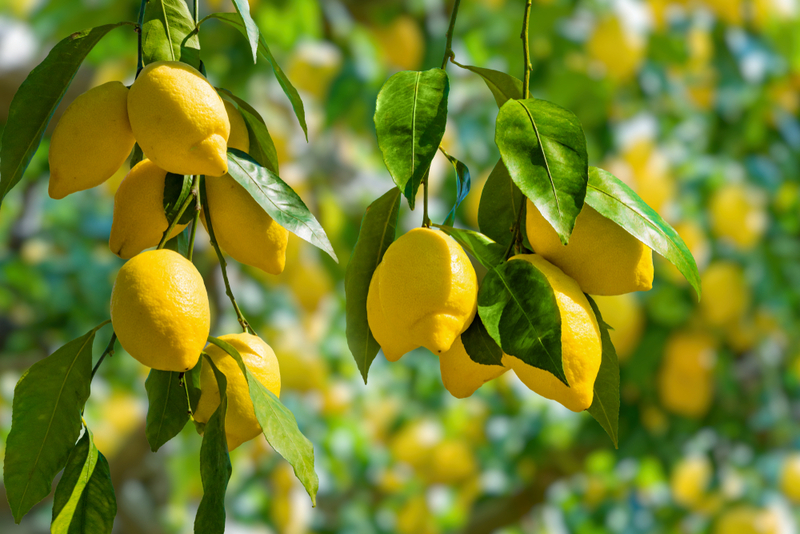
Lemons, like many other brother and sister citrus fruits, will find comfort at room temperature, where they can soften peacefully and prepare themselves to become a glass of goodness. Another tip regarding lemons: a big lemon does not necessarily mean a lot of juice, and many of the smaller ones can produce more lemonade than others.
Wild Berries
As far as we are concerned, there are strawberries, and there is all the rest. We are here to discuss all the rest. Raspberries, blueberries, blackberries, currents of all sorts, and anything else that grows on a bush is far too delicate to be placed in a refrigerator.
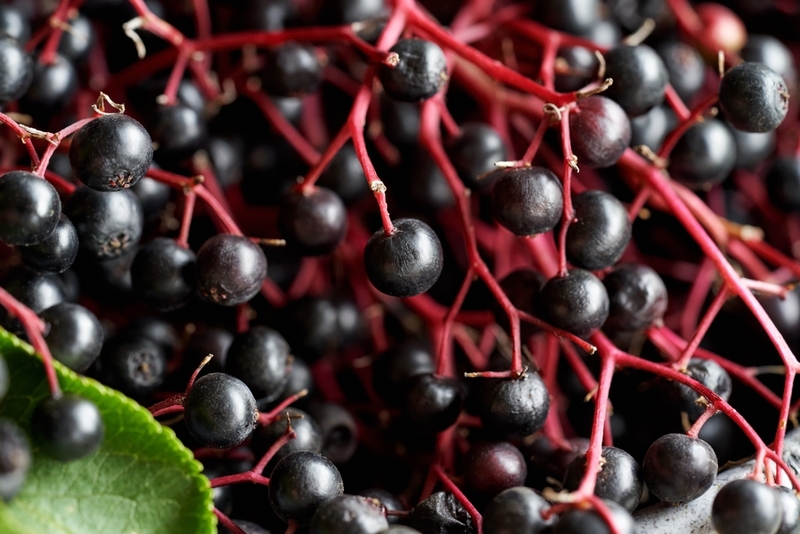
Now, instantly, you would think that being so small and delicate, it would be protected in the cold environment, however, the low temperatures damage the texture and spoil its natural sweetness. The only time we recommend placing berries in the fridge is if they look tired already and you want to make them live a couple of days longer.
Spinach
This is why we have an issue with spinach being kept in the fridge. The spinach has delicate leaves, which hold a high percentage of water. This is why whenever you cook spinach, a whole big bag simmers down to one handful.
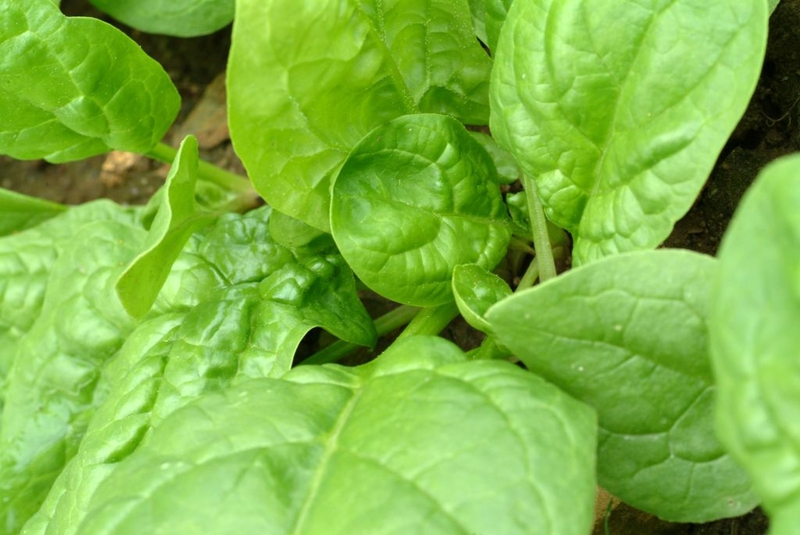
This is also the reason why it can freeze easily, and if the fridge is even a few degrees too low, your spinach leaves will be crispy, not because of their freshness but because they have frozen. Another thing that you don't want to do is place spinach near bananas or apples. These fruits release ethylene, which will turn your beautiful green leaves black.
Grapefruit
One of the biggest citrus fruits we enjoy, especially for breakfast and with a sprinkle of sugar, is another one that is at its best when out of the fridge. The grapefruit is a perfect kick-start to your morning routine, and it will be an even better one at room temperature. The natural sourness of the grapefruit is damaged by the cold temperature in the fridge, and even the texture of the fruit is not what it is supposed to be.
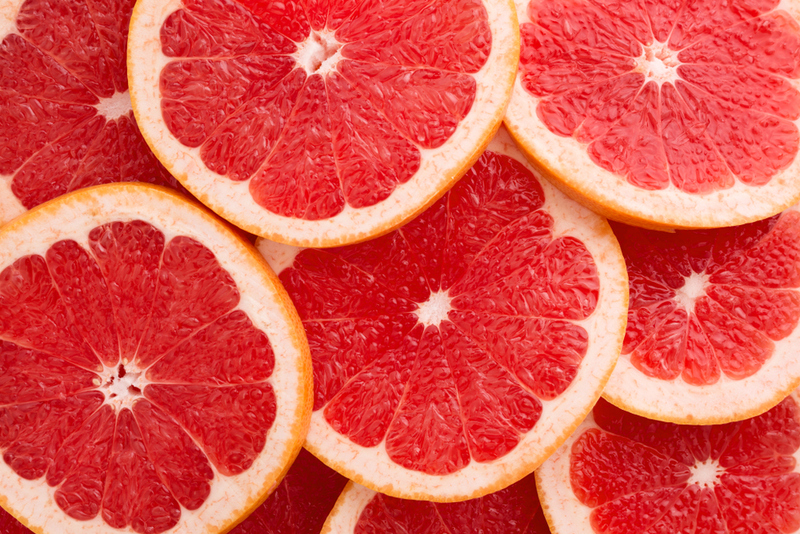
The fruit fluid pockets are naturally full of juices, and when stored at a temperature that is too cold, these juices harden, delivering a dry and dehydrated breakfast companion. So, if you are planning on having half a grapefruit to start your day with, remember to leave it out the night before.
Biscuits
What makes biscuits wonderfully addictive is their flakiness. The butter is what gives them an irresistible texture that gets you coming back for more. One is never enough. So, what happens when you store biscuits in the fridge? They lose the crispiness and flakiness they are loved for, and you can find yourself with a lump that resembles soft or uncooked dough.
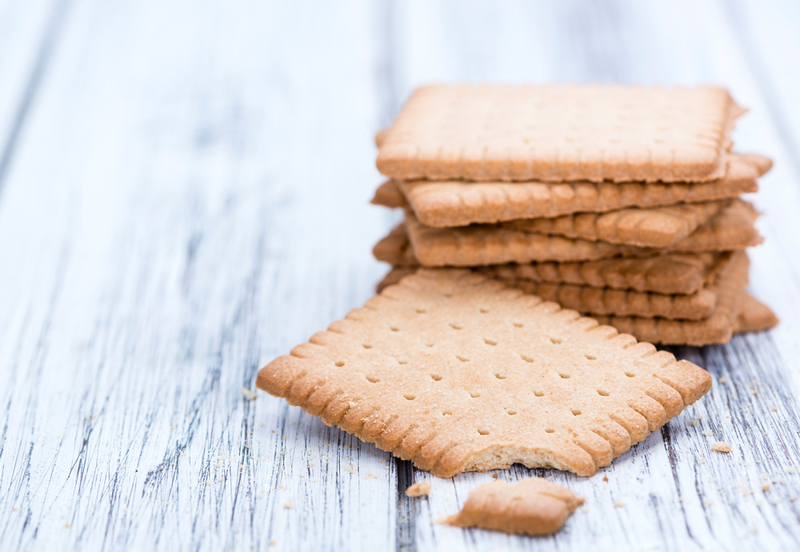
Don't be fooled by biscuits that have a cream or cheese filling. These, too, can live a moderate and pleasant life in a dry and away from sunlight cupboard. Just because they have dairy ingredients in them doesn't mean they have to be hidden in cold and wet conditions.
Cashew Nuts
Cashew nuts are addictive as much as they are healthy. They are a perfect snack, rich in loads of good things (including calories and fat), and are deliciously tasty. Cashews are protein bombs while we're on the go, in our granola, or even turned into milk!
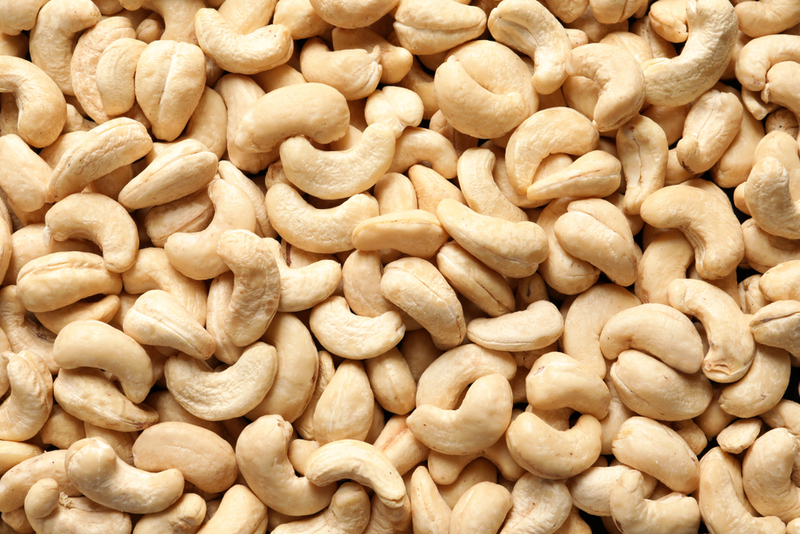
However, storing them is not as straightforward. Cashew nuts fare better in lower temperatures, but if it's too cold, like in a fridge, it could impair their flavor. The best way to store nuts would be to keep them in an airtight container in your pantry or kitchen cupboard, where it's not too warm.
Tangerines
There are tangerines and mandarins and clementines, and only god knows the difference between them. So before we explain why these, too, are better off out of the fridge, let's understand what is what. The mandarine is a type of orange which the tangerine and the clementine are sourced from.
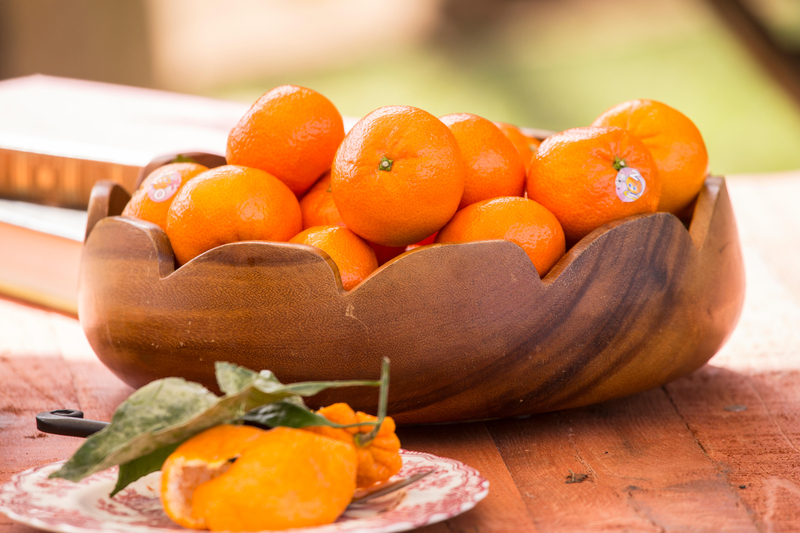
A clementine is a small fruit with smooth-looking skin, and the tangerine is a bigger version with an uneven texture. All three are at their prime when they are at room temperature; they keep their juices fresh, and the most important thing is that they are so much easier to peel when they are not stone cold.
Durian
The durian is known as 'The King of Fruit.' This is not a typical tropical fruit that you regularly buy during summer; it is actually not a typical fruit you will buy at all, but for the sake of those who do, we share our off-fridge or in-the-fridge recommendation. The cold temperatures inside the fridge have a significant effect on the unique aroma the durian fruit has (maybe it's a good thing?), so it should be stored out.
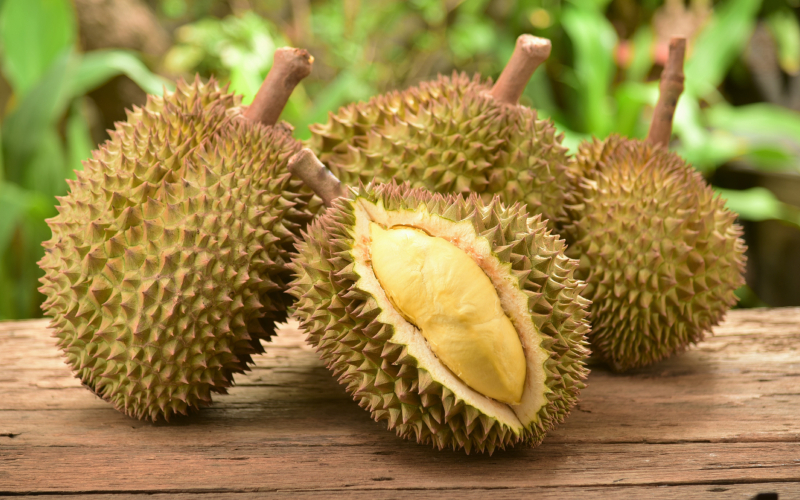
The fragrance of the fruit is what it is best known for, and the last thing you want is all of the food in your fridge smelling like it, so remember, if by any chance you come across this tropical delight, leave it out.
Pistachio
Pistachios are something that you buy in large quantities. You never just buy a small bag and so they are an expensive delight, you want to store them in the best place possible. If you are planning to eat them or cook with them in the next few days, then keeping them in an air-tight container will be the best option.
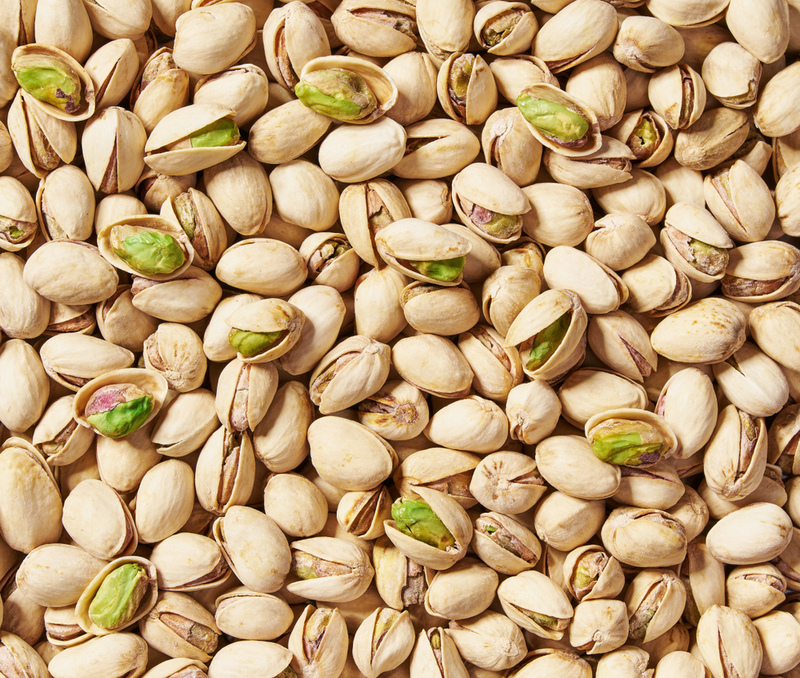
However, what happens if you have a large amount that will last you for weeks? The fridge is not an option. The cold and moist conditions will make your crunchy indulges soggy, so the best alternative would be the free air, which has drier and more optimal conditions.
Parmesan Cheese
Just because parmesan is a type of cheese, it doesn't mean it has to be stored in the fridge. Parmesan is a cheese that is the best companion to spaghetti Bolognese, vegetable lasagna, and practically any other comforting Italian dish. The cheese is rock hard, and if it is not boiling hot outside, there is no need to make it harder than it already is.

The Italian Delight has a relatively low percentage of water in it, so it doesn't need to be protected by low temperatures and a moist environment. The low percentage of water also promises this cheese will not be vulnerable to bacteria of all sorts.
Kiwi
This next one might come as a surprise to you. We mean, everyone we know, including ourselves, keeps kiwis in the fridge. Where else would you keep them? The kiwi is a tropical fruit and, therefore, is not a big fan of the cold weather, so naturally, the fridge is not the place for it to be.
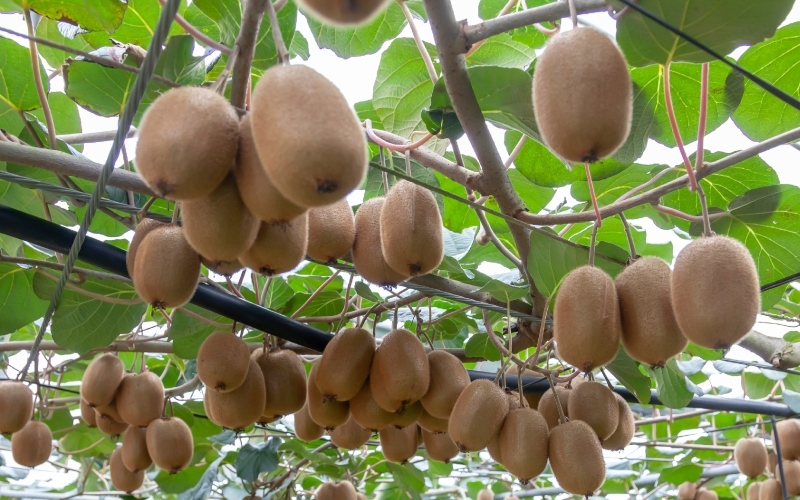
Peeling a kiwi has always been a messy and complicated task, and when the fruit is left in the fridge, it becomes even harder. The peel is supposed to come off easily, and when the flesh of the fruit is at room temperature, it makes the challenge much easier to accomplish.
Oil
We know that most people wouldn't attempt to place regular oil or other oil-based liquids into the fridge, however, even if there is one person out there who would, we must shout. The cold temperatures do not favor any oil-based liquid. In fact, it turns into unidentified material that is thick, separated, and impossible to use.
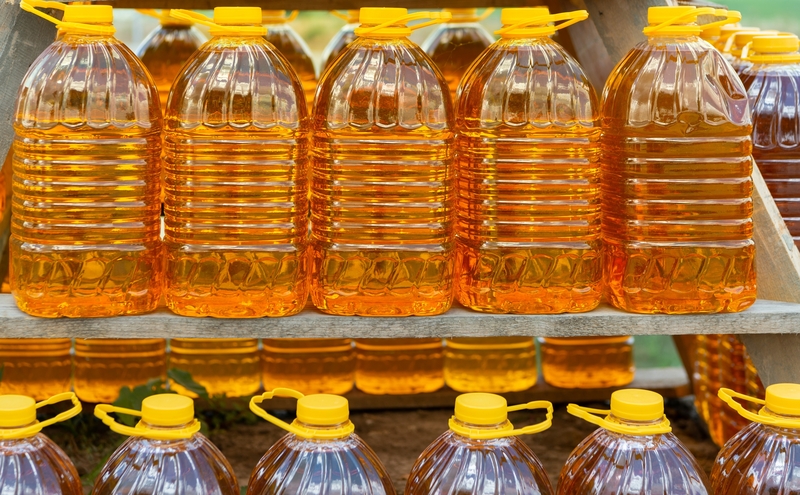
The oil particles become solids with gross lumps that find it difficult to go back to their original state, even after warming up. There will be no harm done to your oily liquids if stored properly in one of your kitchen cupboards, so spare the fridge shelf for other and better foods that will not tolerate the weather outside.
Melons
You'll be surprised to know that there are over 40 varieties of melons. The ones that we are familiar with in the supermarkets are the honeydew melons and cantaloupe melons. The honeydew melons are the ones with the orange peel and the yellow sweet center, while the cantaloupe are the ones that are green on the outside and orange on the inside.
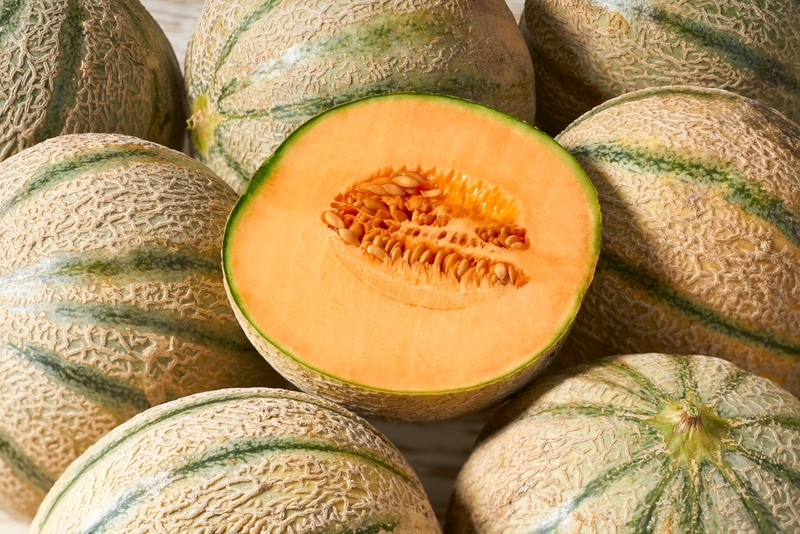
Both varieties are best left alone and out of the fridge. Why, you ask? Well, the true wonderful flavors of the melon can only be appreciated when the fruit is at room temperature. When in the fridge, the melon will become moist, which softens the peel and makes the fruit's flesh soggy and unpleasant.
Broccoli
Broccoli belongs to the cruciferous vegetable family, which includes cauliflowers, Brussels sprouts, cabbage, and others. Now, in general, no harm will be done to our broccoli if placed in the cold refrigerator, however, if it doesn't have enough room to breathe, it starts to go off.
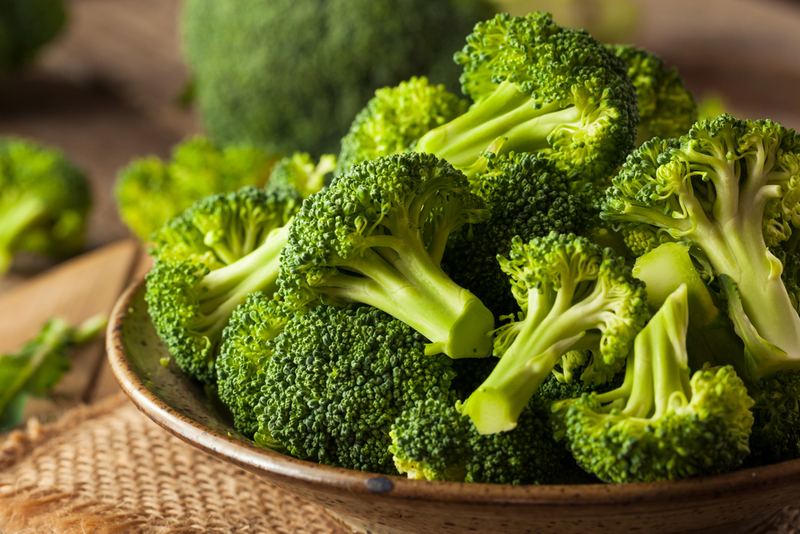
The green miniature tree will keep a long life duration if gently wrapped in a loose plastic bag, which will ensure it has flowing air circulation. If your fridge is anything like ours, there will not be enough space, so it is best to keep it away from sunlight and in a dry place. If it's out, make sure to consume it within two to three days.
Mature White Wine
We hope that when people go wine tasting, they are also shown how to store the wine. There are many rules and regulations that differ from red to white, and mature white wines are the most delicate ones. White wine is served out of the fridge. However, many places serve it too cold, and the delicate notes of flavor are barely noticeable.

Serving white wine at room temperature, it loses the crispiness and freshness that characterizes it most. To enjoy the mature white wines best, store them in the fridge only two to three days before you are planning on drinking them, and for the rest of the time, keep them in a cool, dry, and away from sunlight cabinet.
Vinegar
Vinegar is a base ingredient in many foods. You can find it on the ingredient lists of so many items you have stored in your kitchen, such as ketchup, mustard, salsa, and jars of pickles. Vinegar has a very high level of acidity, which turns it into a natural preservative, meaning no matter what it goes through, it will not spoil or go bad.
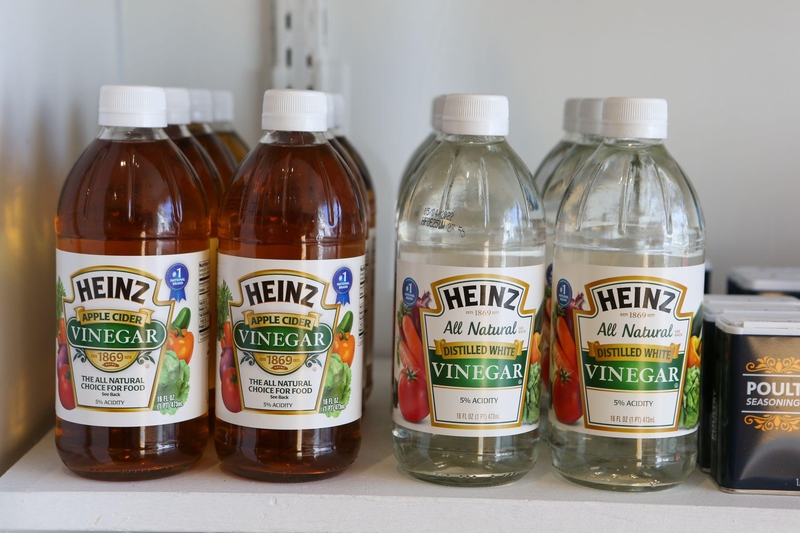
Vinegar can be stored at room temperature for years, and some kinds of this preservative even mature well and improve in time. There is no point in storing this in cold conditions, and it can be safely placed in one of your kitchen cupboards.
Mushrooms
The fine line between dry mushrooms and overly wet is very fine. Mushrooms are a product of moisture, however, if they are in a wet or too-cold environment, they will spoil and won't be edible. Mushrooms can easily lose their freshness and natural texture and resemble a soft cloth more than anything else. The best way to keep your mushrooms is to wrap them in kitchen paper.
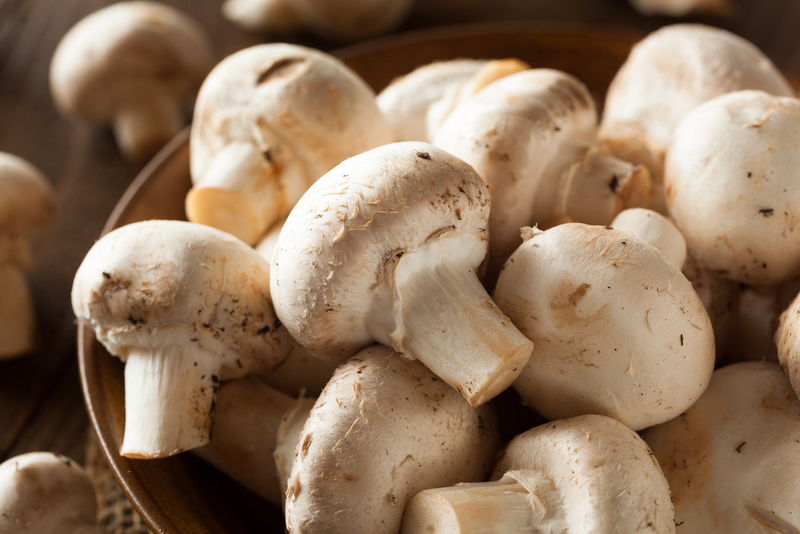
The paper will absorb the access moisture and will keep them from getting wet. Mushrooms are delicate; they have a very short life duration, however, if they are stored properly and eaten in time, they can turn any bland dish into a delight.
Cauliflower
Cauliflower is all about creativity. There are so many things this remarkable vegetable can do, and it doesn't need a fridge to do it. Now, are you familiar with the small black spots that suddenly, out of nowhere, appear on your cauliflower? Well, that is a result of too much moisture and to be honest, if the vegetable is in good condition, and you are planning on eating it within the next few days, there is no need to put it in the fridge at all.
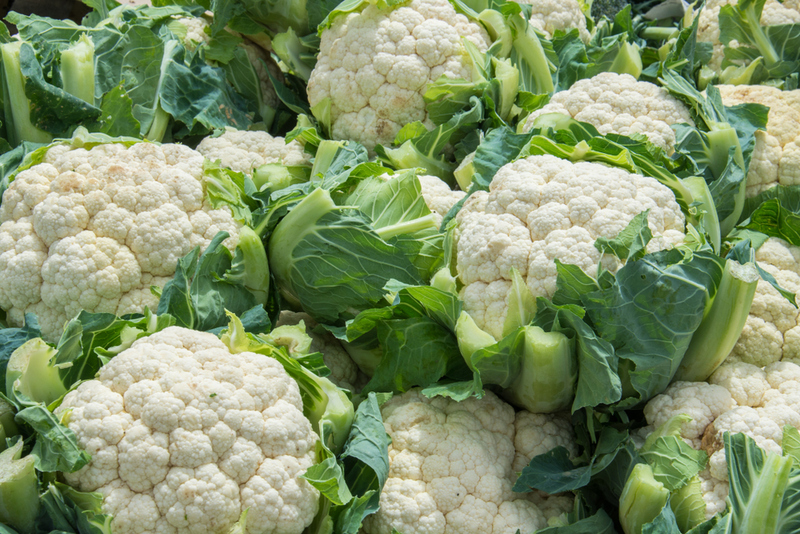
The cold temperature will not make it harder, just as the room temperature will not make it softer. If you cut the cauliflower into pieces, then that is a different story, and yes, then it should be placed in the fridge.
Asparagus
Whatever you do, do not place asparagus on the top shelf of your refrigerator. The top shelves tend to get even colder than the rest of the fridge, and the asparagus, being so delicate, will not adapt well. Like many fresh foods, if you are not going to consume them within a few days, what is the point in buying them?
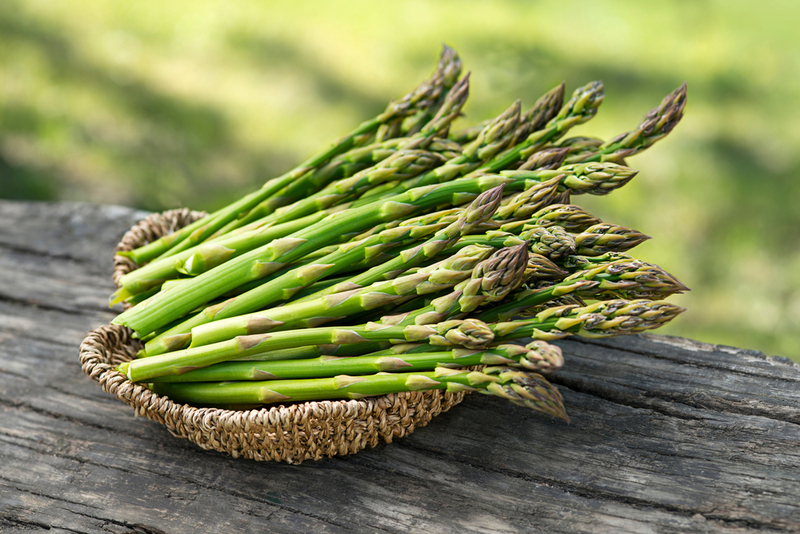
Fresh foods, including fresh fruit and vegetables, are supposed to be consumed immediately, and if we keep them in the fridge, we're interfering with the natural conditions they are used to. Sure, cold temperatures will maybe make your asparagus last a couple of days longer, but would you prefer to eat something fresh at room temperature?
Persimmons
Here is a short guide for how to purchase, store, and understand the life cycle of the persimmon. The darker the skin is, the better the persimmon will be. Like many fruits, persimmons must be stored at room temperature. There is no other alternative. Once they are in a cold environment, they become too soft and lose their wonderful texture.
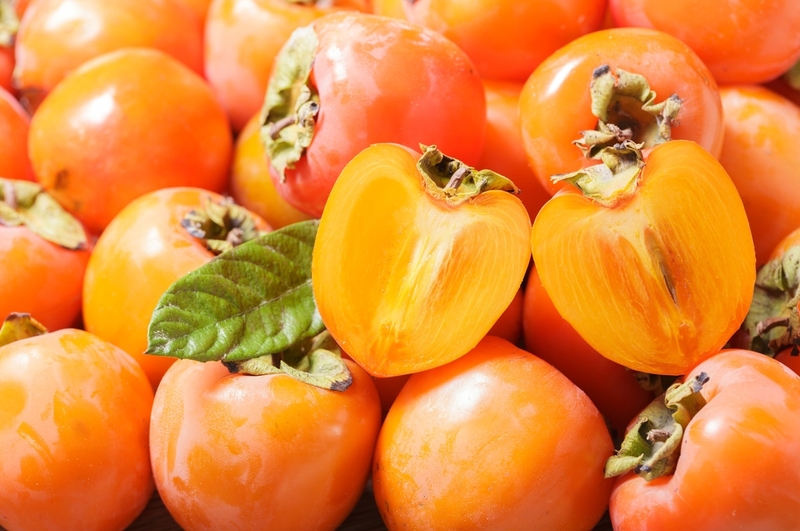
It is best to place the fruit when its stem is facing down, as this will give it a longer life duration. Persimmons are available between October and January, so if you see some on shelves before October, they will not be ready to eat, and if you come across them on Valentine's Day, they will be well after their prime.
Panko Bread Crumbs
Logically, if we were to store bread crumbs in the fridge, they would last longer. Right? Wrong! The truth is bread crumbs, be they bought in the supermarket or made fresh at home, will live much longer if they are stored in a dry container, in the cupboard, and away from direct sunlight.
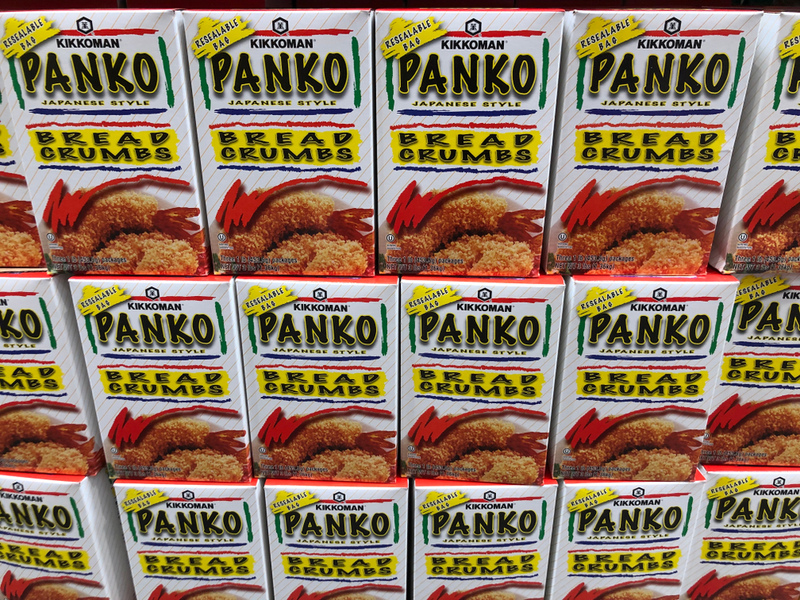
If the crumbs (and this goes for Panko, too) are in contact with any other food that is wet or with a high percentage of moisture, they will lose their ability to crisp up, and instead of crispy nuggets or flaky tempura prawns, you will find yourself with something soggy that will never manage to turn golden brown.